Discover Scrum Master Toolbox Podcast: Agile storytelling from the trenches
Scrum Master Toolbox Podcast: Agile storytelling from the trenches

Scrum Master Toolbox Podcast: Agile storytelling from the trenches
Author: Vasco Duarte, Agile Coach, Certified Scrum Master, Certified Product Owner
Subscribed: 5,849Played: 538,010Subscribe
Share
© (c) Oikosofy Oü
Description
Every week day, Certified Scrum Master, Agile Coach and business consultant Vasco Duarte interviews Scrum Masters and Agile Coaches from all over the world to get you actionable advice, new tips and tricks, improve your craft as a Scrum Master with daily doses of inspiring conversations with Scrum Masters from the all over the world. Stay tuned for BONUS episodes when we interview Agile gurus and other thought leaders in the business space to bring you the Agile Business perspective you need to succeed as a Scrum Master.
Some of the topics we discuss include: Agile Business, Agile Strategy, Retrospectives, Team motivation, Sprint Planning, Daily Scrum, Sprint Review, Backlog Refinement, Scaling Scrum, Lean Startup, Test Driven Development (TDD), Behavior Driven Development (BDD), Paper Prototyping, QA in Scrum, the role of agile managers, servant leadership, agile coaching, and more!
Some of the topics we discuss include: Agile Business, Agile Strategy, Retrospectives, Team motivation, Sprint Planning, Daily Scrum, Sprint Review, Backlog Refinement, Scaling Scrum, Lean Startup, Test Driven Development (TDD), Behavior Driven Development (BDD), Paper Prototyping, QA in Scrum, the role of agile managers, servant leadership, agile coaching, and more!
1696 Episodes
Reverse
Bernie Maloney: From Permission-Seeking to Forgiveness-Begging—Agile Team Evolution in Self-Management Read the full Show Notes and search through the world's largest audio library on Agile and Scrum directly on the Scrum Master Toolbox Podcast website: http://bit.ly/SMTP_ShowNotes. Bernie defines success for Scrum Masters as creating teams that can thrive and do their best work independently. His ultimate goal is to make himself unnecessary - developing self-directing teams that step out of waiting for direction and instead seek permission or even beg forgiveness when needed. Using the "Circles and Soup" framework, Bernie helps teams stretch their circles of influence and control. He recognizes that every manager wants teams to succeed but may lack the necessary tools, making it crucial for Scrum Masters to coach managers as well. Bernie recommends building a backlog of organizational impediments and focusing on the top priority that will move the ball forward most effectively. Featured Retrospective Format for the Week: Sailboat Bernie champions the Sailboat retrospective format for its simplicity and adaptability. While the basic format is straightforward, he appreciates that you can add layers of complexity as needed. Bernie tends to keep retrospectives simple and also mentions the "What the Duck?" technique as another valuable retrospective tool. He suggests incorporating creative elements like having people build LEGO representations of what they're discussing, which helps teams visualize and engage with concepts more effectively. To know more about LEGO Serious Play, check out the Serious Play book. In this segment, we also refer to Dissociation in Psychology, which helps with "third position" coaching/thinking, and Bernie’s video on creative retrospective formats. Self-reflection Question: How are you measuring whether your teams are becoming more self-directing, and what specific behaviors indicate they're ready to operate with less guidance? [The Scrum Master Toolbox Podcast Recommends] 🔥In the ruthless world of fintech, success isn’t just about innovation—it’s about coaching!🔥 Angela thought she was just there to coach a team. But now, she’s caught in the middle of a corporate espionage drama that could make or break the future of digital banking. Can she help the team regain their mojo and outwit their rivals, or will the competition crush their ambitions? As alliances shift and the pressure builds, one thing becomes clear: this isn’t just about the product—it’s about the people. 🚨 Will Angela’s coaching be enough? Find out in Shift: From Product to People—the gripping story of high-stakes innovation and corporate intrigue. Buy Now on Amazon [The Scrum Master Toolbox Podcast Recommends] About Bernie Maloney Bernie Maloney has helped teams grow businesses to beyond $4B / year, delivering products from consumer electronics to network infrastructure to services & payments. He helps clients achieve performance breakthroughs with their teams, organizations and themselves, and believes that leads both to outrageous effectiveness, and a whole lot more fun. You can link with Bernie Maloney on LinkedIn, and visit Bernie’s website and YouTube Channel.
Bernie Maloney: Mastering Complexity Through Systems Thinking and NLP Coaching Read the full Show Notes and search through the world's largest audio library on Agile and Scrum directly on the Scrum Master Toolbox Podcast website: http://bit.ly/SMTP_ShowNotes. Bernie addresses the constant challenge of mid-sprint changes by asking the crucial question: "what do you want to trade in for that new request?" His approach centers on recognizing that everyone is trying to do their best with what they have, using techniques from NLP and the three coaching positions to help people see the whole system. Bernie emphasizes rapport building as a key skill for Scrum Masters and warns against the anti-pattern of becoming judgmental when challenges arise. He advocates for moving from a plan-and-predict mentality to sense-and-respond thinking, highlighting the importance of conducting retrospectives once challenges are solved. Bernie's coaching philosophy revolves around helping people step into the "third position" - a dissociated perspective that enables better problem-solving and systems thinking. In this episode, we refer to Neuro-linguistic Programming (NLP), and to Instant Rapport by Michael Brooks, a primer on NLP. We also refer to the plan-and-predict vs sense-and-respond mentality. Self-reflection Question: How effectively are you helping your teams and stakeholders see the whole system when challenges arise, rather than just focusing on individual pain points? [The Scrum Master Toolbox Podcast Recommends] 🔥In the ruthless world of fintech, success isn’t just about innovation—it’s about coaching!🔥 Angela thought she was just there to coach a team. But now, she’s caught in the middle of a corporate espionage drama that could make or break the future of digital banking. Can she help the team regain their mojo and outwit their rivals, or will the competition crush their ambitions? As alliances shift and the pressure builds, one thing becomes clear: this isn’t just about the product—it’s about the people. 🚨 Will Angela’s coaching be enough? Find out in Shift: From Product to People—the gripping story of high-stakes innovation and corporate intrigue. Buy Now on Amazon [The Scrum Master Toolbox Podcast Recommends] About Bernie Maloney Bernie Maloney has helped teams grow businesses to beyond $4B / year, delivering products from consumer electronics to network infrastructure to services & payments. He helps clients achieve performance breakthroughs with their teams, organizations and themselves, and believes that leads both to outrageous effectiveness, and a whole lot more fun. You can link with Bernie Maloney on LinkedIn, and visit Bernie’s website and YouTube Channel.
Bernie Maloney: The Triangulation Technique—Coaching Agile Teams Through Challenges Read the full Show Notes and search through the world's largest audio library on Agile and Scrum directly on the Scrum Master Toolbox Podcast website: http://bit.ly/SMTP_ShowNotes. Bernie identifies critical patterns that cause teams to self-destruct, with lack of clarity about intention being the most common culprit. When teams are treated as mere "task workers" without clear vision, strategy, or goals, they become depressed and directionless. Some teams seek forgiveness after failed experiments, while others get stuck seeking permission without taking enough self-leadership. Bernie emphasizes that waiting for direction is fundamentally self-destructive behavior, and Scrum Masters must create safety for teams to reach high performance. He introduces the coaching technique of triangulation, where problems become a third point that coach and coachee examine together, side by side, rather than facing each other in opposition. In this segment, we talk about “What the Duck”, a Lego Serious Play workshop. Featured Book of the Week: Start with Why by Simon Sinek Bernie champions "Start with Why" by Simon Sinek as essential reading for Scrum Masters working to transform team culture. He explains that compelling stories are how leaders truly influence others, following the sequence of Attention-Emotion-Reason. This book helps Scrum Masters understand that their job fundamentally involves changing culture, and leaders must demonstrate the change they want to see. Bernie connects this to the broader leadership challenge of developing coaching and mentoring skills within organizational structures. During this segment, we also refer to the following books: Drive, By Dan Pink Change the Culture, Change the Game, by Connors et al. The Secret Language of Leadership, by Denning Too Many Bosses, Too Few Leaders, by Peshawaria The Geek Way, by McAfee Right Kind of Wrong, by Edmondson Self-reflection Question: What patterns of self-destructive behavior might your teams be exhibiting, and how could you help them move from seeking permission to taking ownership? [The Scrum Master Toolbox Podcast Recommends] 🔥In the ruthless world of fintech, success isn’t just about innovation—it’s about coaching!🔥 Angela thought she was just there to coach a team. But now, she’s caught in the middle of a corporate espionage drama that could make or break the future of digital banking. Can she help the team regain their mojo and outwit their rivals, or will the competition crush their ambitions? As alliances shift and the pressure builds, one thing becomes clear: this isn’t just about the product—it’s about the people. 🚨 Will Angela’s coaching be enough? Find out in Shift: From Product to People—the gripping story of high-stakes innovation and corporate intrigue. Buy Now on Amazon [The Scrum Master Toolbox Podcast Recommends] About Bernie Maloney Bernie Maloney has helped teams grow businesses to beyond $4B / year, delivering products from consumer electronics to network infrastructure to services & payments. He helps clients achieve performance breakthroughs with their teams, organizations and themselves, and believes that leads both to outrageous effectiveness, and a whole lot more fun. You can link with Bernie Maloney on LinkedIn, and visit Bernie’s website and YouTube Channel.
Bernie Maloney: The Power of Psychological Safety in Agile Teams Read the full Show Notes and search through the world's largest audio library on Agile and Scrum directly on the Scrum Master Toolbox Podcast website: http://bit.ly/SMTP_ShowNotes. Bernie shares a powerful story about learning what psychological safety truly means through both success and failure. Working in a high-pressure division with tight timelines and margins, Bernie discovered the transformative power of the mantra "always make a new mistake." When he made a significant error and was met with understanding rather than punishment, he experienced firsthand how psychological safety enables teams to thrive. Later, facing a different challenge where mistrust existed between management and teams, Bernie had to navigate the delicate balance of maintaining psychological safety while addressing management's desire for transparency. His solution was innovative: conduct retrospectives with the team first, then invite managers in at the end with anonymized contributions. Bernie's approach of framing changes as experiments helped people embrace newness, knowing it would be time-bound and reversible. In this episode we refer to Neuro-linguistic Programming (NLP). Self-reflection Question: How might your current approach to mistakes and experimentation be either fostering or undermining psychological safety within your team? [The Scrum Master Toolbox Podcast Recommends] 🔥In the ruthless world of fintech, success isn’t just about innovation—it’s about coaching!🔥 Angela thought she was just there to coach a team. But now, she’s caught in the middle of a corporate espionage drama that could make or break the future of digital banking. Can she help the team regain their mojo and outwit their rivals, or will the competition crush their ambitions? As alliances shift and the pressure builds, one thing becomes clear: this isn’t just about the product—it’s about the people. 🚨 Will Angela’s coaching be enough? Find out in Shift: From Product to People—the gripping story of high-stakes innovation and corporate intrigue. Buy Now on Amazon [The Scrum Master Toolbox Podcast Recommends] About Bernie Maloney Bernie Maloney has helped teams grow businesses to beyond $4B / year, delivering products from consumer electronics to network infrastructure to services & payments. He helps clients achieve performance breakthroughs with their teams, organizations and themselves, and believes that leads both to outrageous effectiveness, and a whole lot more fun. You can link with Bernie Maloney on LinkedIn, and visit Bernie’s website and YouTube Channel.
CTO Series: Toni Sallanmaa on Scaling Engineering Teams and Aligning Tech with Business Goals In this BONUS episode, we explore the journey of scaling technology teams and maintaining alignment between engineering and business objectives with Toni Sallanmaa, CTO at Funidata. Toni shares invaluable insights from leading the development of Sisu, a cutting-edge student information system serving over 100,000 Finnish university users, and discusses practical strategies for growing engineering organizations while preserving company culture. The Genesis of Leadership in Technology "I understood what I was really responsible for. I'm interested in the business we are running—the business adds meaning to the work." Toni's approach to technology leadership was fundamentally shaped by a pivotal moment early in his career when he first gained influence over system development and technology choices. After working with large-scale systems for 20 years, this moment of responsibility revelation transformed his perspective from purely technical to business-focused. He emphasizes that infinite curiosity drives success in tech businesses, and understanding the business context gives meaningful purpose to technical work. Bridging the Gap Between Tech and Product "Don't separate Tech from Product. We established a common language between product and technology people." One of Toni's most significant insights centers on eliminating the traditional divide between technology and product teams. As Funidata grew from a small startup to a 70-person organization, the challenges of maintaining alignment became apparent. Their solution involved several key practices: Teaching developers the language of the product domain Banning confusing technical terms that create communication barriers Workshopping product language to ensure clarity Keeping entity names deliberately vague until true understanding emerges This approach draws heavily from Domain Driven Design principles, creating a unified vocabulary that enables seamless collaboration. Collaborative Planning and Transparency "We use transparency as a collaboration technique. Every team sees what's being proposed as a goal for the next quarter." Funidata implements a unique "marketplace of goals" approach during their quarterly big room planning sessions. Rather than using scaled agile frameworks, they focus on transparency and collaborative goal-setting. Teams present their high-level quarterly plans to each other, creating visibility across the organization. Product owners are embedded within teams, keeping communication distances short and ensuring alignment between technical execution and business objectives. Future-Forward Roadmapping "We talk about the higher level ideas regularly, but let them bubble up from the community. We hold internal hackathons." Toni's approach to roadmapping balances strategic vision with grassroots innovation. They maintain an internal technology roadmap that addresses emerging trends like AI, while allowing ideas to organically emerge from the engineering community. Internal hackathons serve as catalysts for innovation, providing structured opportunities for teams to explore new technologies and approaches that might inform future roadmap decisions. Scaling Challenges and Cultural Preservation "The biggest challenge is not technology, it was the rapid scaling of technology teams. When you scale up, keep the culture in mind." The most significant challenge Toni faced wasn't technical but organizational—rapidly scaling teams while preserving company culture. Growing from 10 to 50 people required evolving processes, from establishing internal forums for architectural discussions to implementing continuous integration flows. The key was identifying pain points proactively and maintaining open discussions with team members throughout the scaling process. Strengthening company culture became essential to successful growth. AI's Impact on Software Development "Productivity is on the rise. We see opportunities like generating test data, but we have strict requirements for cybersecurity, which puts pressure on code quality." Toni views AI's impact on software development with cautious optimism. While productivity gains are evident, particularly in areas like test data generation, the stringent cybersecurity requirements in their domain mean that AI hasn't yet significantly improved code quality where it matters most. The technology shows promise, but implementation must be carefully considered within the context of security and quality requirements. Measuring Engineering Success "We use DORA and SPACE framework. We measure how much of our work is KTLO (Keep The Lights On) and how much is elective development." Funidata employs both DORA and SPACE frameworks to measure engineering organization success. From SPACE, they particularly focus on measuring software team wellbeing, while also tracking the balance between "Keep The Lights On" (KTLO) work and elective development. Using JIRA connected to a data warehouse, they mine extensive data that serves both leadership decision-making and team improvement efforts, ensuring metrics benefit everyone in the organization. Influential Leadership Resources "The organizational books have been more influential to me than purely technical ones." Toni emphasizes that organizational leadership books have shaped his CTO approach more than technical resources. Two key influences stand out: "Team Topologies" for understanding how to structure and scale engineering teams effectively, and "Radical Candor" for building authentic, productive relationships within the organization. You can find a BONUS episode on Team Topologies with the authors Matthew Skeltton and Manuel Pais. About Toni Sallanmaa Toni leads technology and engineering at Funidata, developing Sisu—a cutting-edge student information system serving over 100,000 Finnish university users. Passionate about agile methodologies, system architecture, and software engineering, Toni specializes in technology management, software lifecycle, OOP, and relational databases to deliver innovative, scalable solutions in higher education tech. You can connect with Toni Sallanmaa on LinkedIn.
Mariano Gontchar: The Micromanagement Trap—When PO’s Good Intentions Harm Agile Team Performance Read the full Show Notes and search through the world's largest audio library on Agile and Scrum directly on the Scrum Master Toolbox Podcast website: http://bit.ly/SMTP_ShowNotes. The Great Product Owner: The Visionary Leader During an agile transformation project modernizing a build system with multiple stakeholders, Mariano worked with an exceptional Product Owner who demonstrated the power of clear vision and well-defined roadmaps. This visionary Product Owner successfully navigated complex stakeholder relationships by maintaining focus on the product vision while providing clear direction through structured roadmap planning, enabling the team to deliver meaningful results in a challenging environment. The Bad Product Owner: The Task-Manager Micromanager Mariano encountered a well-intentioned Product Owner who fell into the task-manager anti-pattern, becoming overly detail-oriented and controlling. This Product Owner provided extremely detailed story descriptions and even specified who should do what tasks instead of explaining why work was needed. This approach turned the team into mere task-handlers with no space to contribute their expertise, ultimately reducing both engagement and effectiveness despite the Product Owner's good intentions. Self-reflection Question: Are you empowering your team to contribute their expertise, or are you inadvertently turning them into task-handlers through over-specification? [The Scrum Master Toolbox Podcast Recommends] 🔥In the ruthless world of fintech, success isn’t just about innovation—it’s about coaching!🔥 Angela thought she was just there to coach a team. But now, she’s caught in the middle of a corporate espionage drama that could make or break the future of digital banking. Can she help the team regain their mojo and outwit their rivals, or will the competition crush their ambitions? As alliances shift and the pressure builds, one thing becomes clear: this isn’t just about the product—it’s about the people. 🚨 Will Angela’s coaching be enough? Find out in Shift: From Product to People—the gripping story of high-stakes innovation and corporate intrigue. Buy Now on Amazon [The Scrum Master Toolbox Podcast Recommends] About Mariano Gontchar Mariano is a Madrid-based Scrum Master with a unique multi-perspective journey through Agile roles. Having evolved from developer to Product Owner, Project Manager, and now Scrum Master, he brings comprehensive insights to team facilitation and backlog management. Mariano specializes in practical Agile adoption strategies that work in real-world environments. You can link with Mariano Gontchar on LinkedIn.
Mariano Gontchar: Fear-Free Teams—Creating Psychological Safety for High Performance Read the full Show Notes and search through the world's largest audio library on Agile and Scrum directly on the Scrum Master Toolbox Podcast website: http://bit.ly/SMTP_ShowNotes. Mariano's definition of Scrum Master success has evolved dramatically from his early days of focusing on "deliver on time and budget" to a more sophisticated understanding centered on team independence and psychological safety. Today, he measures success by whether teams can self-manage, communicate effectively with stakeholders, and operate without fear of criticism. This shift represents a fundamental change from output-focused metrics to outcome-focused team health indicators that create sustainable high performance. Self-reflection Question: How has your definition of success evolved in your current role, and what would change if you focused on team independence rather than traditional delivery metrics? Featured Retrospective Format for the Week: Frustration-Based Retrospective Mariano's retrospective approach focuses on asking team members about their biggest frustrations from the last sprint. This format helps team members realize their frustrations aren't unique and creates psychological safety for sharing challenges. The key is always asking the team to propose solutions themselves rather than imposing fixes, making retrospectives about genuine continuous improvement rather than just complaining sessions. [The Scrum Master Toolbox Podcast Recommends] 🔥In the ruthless world of fintech, success isn’t just about innovation—it’s about coaching!🔥 Angela thought she was just there to coach a team. But now, she’s caught in the middle of a corporate espionage drama that could make or break the future of digital banking. Can she help the team regain their mojo and outwit their rivals, or will the competition crush their ambitions? As alliances shift and the pressure builds, one thing becomes clear: this isn’t just about the product—it’s about the people. 🚨 Will Angela’s coaching be enough? Find out in Shift: From Product to People—the gripping story of high-stakes innovation and corporate intrigue. Buy Now on Amazon [The Scrum Master Toolbox Podcast Recommends] About Mariano Gontchar Mariano is a Madrid-based Scrum Master with a unique multi-perspective journey through Agile roles. Having evolved from developer to Product Owner, Project Manager, and now Scrum Master, he brings comprehensive insights to team facilitation and backlog management. Mariano specializes in practical Agile adoption strategies that work in real-world environments. You can link with Mariano Gontchar on LinkedIn.
Mariano Gontchar: From Evangelist to Facilitator—How To Lead A Successful Company Merger Read the full Show Notes and search through the world's largest audio library on Agile and Scrum directly on the Scrum Master Toolbox Podcast website: http://bit.ly/SMTP_ShowNotes. During a complex merger between two telecom companies, Mariano faced the challenge of uniting team members with different cultures, practices, and tools. His initial approach of selling Agile theory instead of focusing on benefits failed because he forgot about the "why" of change. The breakthrough came when he shifted from being an Agile evangelist to becoming a facilitator who listened to managers' real challenges. By connecting people and letting the team present their own solutions to leadership, Mariano successfully created unity between the formerly divided groups. Self-reflection Question: Are you trying to sell your methodology or solve real problems, and what would happen if you focused on understanding challenges before proposing solutions? [The Scrum Master Toolbox Podcast Recommends] 🔥In the ruthless world of fintech, success isn’t just about innovation—it’s about coaching!🔥 Angela thought she was just there to coach a team. But now, she’s caught in the middle of a corporate espionage drama that could make or break the future of digital banking. Can she help the team regain their mojo and outwit their rivals, or will the competition crush their ambitions? As alliances shift and the pressure builds, one thing becomes clear: this isn’t just about the product—it’s about the people. 🚨 Will Angela’s coaching be enough? Find out in Shift: From Product to People—the gripping story of high-stakes innovation and corporate intrigue. Buy Now on Amazon [The Scrum Master Toolbox Podcast Recommends] About Mariano Gontchar Mariano is a Madrid-based Scrum Master with a unique multi-perspective journey through Agile roles. Having evolved from developer to Product Owner, Project Manager, and now Scrum Master, he brings comprehensive insights to team facilitation and backlog management. Mariano specializes in practical Agile adoption strategies that work in real-world environments. You can link with Mariano Gontchar on LinkedIn.
Mariano Gontchar: Breaking Down The Clan Mentality In Agile Teams Read the full Show Notes and search through the world's largest audio library on Agile and Scrum directly on the Scrum Master Toolbox Podcast website: http://bit.ly/SMTP_ShowNotes. Mariano encountered a competent team that was sabotaging itself through internal divisions and lack of trust. The team had formed clans that didn't trust each other, creating blind spots even during retrospectives. Rather than simply telling the team what was wrong, Mariano created an anonymous fear-based retrospective that revealed the root cause: a Product Owner who behaved like a boss and evaluated team members, creating a culture of fear. His approach demonstrates the power of empowering teams to discover and solve their own problems rather than imposing solutions from above. Self-reflection Question: What fears might be hiding beneath the surface of your team's dynamics, and how could you create a safe space for them to emerge? Featured Book of the Week: Turn the Ship Around! by David Marquet Mariano recommends "Turn the Ship Around!" by David Marquet (we have an episode with David Marquet talking about this book, check it here). Mariano highlights the fascinating story and introduction to the leader-leader model, which differs significantly from the traditional leader-follower approach. This book resonates with Mariano's journey from directive leadership to facilitative leadership, showing how empowering others rather than commanding them creates more effective and engaged teams. [The Scrum Master Toolbox Podcast Recommends] 🔥In the ruthless world of fintech, success isn’t just about innovation—it’s about coaching!🔥 Angela thought she was just there to coach a team. But now, she’s caught in the middle of a corporate espionage drama that could make or break the future of digital banking. Can she help the team regain their mojo and outwit their rivals, or will the competition crush their ambitions? As alliances shift and the pressure builds, one thing becomes clear: this isn’t just about the product—it’s about the people. 🚨 Will Angela’s coaching be enough? Find out in Shift: From Product to People—the gripping story of high-stakes innovation and corporate intrigue. Buy Now on Amazon [The Scrum Master Toolbox Podcast Recommends] About Mariano Gontchar Mariano is a Madrid-based Scrum Master with a unique multi-perspective journey through Agile roles. Having evolved from developer to Product Owner, Project Manager, and now Scrum Master, he brings comprehensive insights to team facilitation and backlog management. Mariano specializes in practical Agile adoption strategies that work in real-world environments. You can link with Mariano Gontchar on LinkedIn.
Mariano Gontchar: From Boss to Facilitator—The Critical Role of Empathy in Scrum Mastery Read the full Show Notes and search through the world's largest audio library on Agile and Scrum directly on the Scrum Master Toolbox Podcast website: http://bit.ly/SMTP_ShowNotes. Mariano shares his transformation from viewing himself as a boss in his project manager role to embracing the facilitator mindset essential for Scrum Masters. His journey reveals a crucial insight: you cannot implement Scrum with a "big bang" approach. Instead, success comes through empathy and understanding your team's needs. Mariano emphasizes that working with Agile requires constant practice and learning, but the key lesson that changed everything for him was learning to empathize with his team members rather than directing them from above. Self-reflection Question: How might your current leadership style be limiting your team's potential, and what would change if you shifted from directing to facilitating? [The Scrum Master Toolbox Podcast Recommends] 🔥In the ruthless world of fintech, success isn’t just about innovation—it’s about coaching!🔥 Angela thought she was just there to coach a team. But now, she’s caught in the middle of a corporate espionage drama that could make or break the future of digital banking. Can she help the team regain their mojo and outwit their rivals, or will the competition crush their ambitions? As alliances shift and the pressure builds, one thing becomes clear: this isn’t just about the product—it’s about the people. 🚨 Will Angela’s coaching be enough? Find out in Shift: From Product to People—the gripping story of high-stakes innovation and corporate intrigue. Buy Now on Amazon [The Scrum Master Toolbox Podcast Recommends] About Mariano Gontchar Mariano is a Madrid-based Scrum Master with a unique multi-perspective journey through Agile roles. Having evolved from developer to Product Owner, Project Manager, and now Scrum Master, he brings comprehensive insights to team facilitation and backlog management. Mariano specializes in practical Agile adoption strategies that work in real-world environments. You can link with Mariano Gontchar on LinkedIn.
BONUS: Agile Tour Vienna 2025—Building Community-Driven Agile Excellence In this BONUS episode, we explore the upcoming Agile Tour Vienna 2025 (get your ticket now!) with three passionate organizers who are bringing together the Austrian agile community for a day of learning, networking, and innovation. Join us as we dive into what makes this community-driven event special, the challenges facing today's agile practitioners, and why local connections matter more than ever in our evolving professional landscape. The Heart of Community-Driven Events "For me, it's really about creating an event from the community for the community. So at the Agile Tour Vienna we really pay a lot of attention that the contributions are made by community members." - Sabina Lammert The foundation of Agile Tour Vienna lies in its commitment to authentic community engagement. Unlike corporate-led conferences focused on sales and marketing, this event prioritizes genuine knowledge sharing and peer-to-peer learning. The organizers emphasize creating space for meaningful conversations, where participants don't just consume content but actively contribute to discussions and support one another with real-world challenges. This approach fosters an intimate atmosphere where attendees leave with valuable professional connections and practical insights they can immediately apply. Balancing Local Expertise with Global Perspectives "This local aspect is very important, but then it needs to be enhanced by bringing in ideas from people from the outside world." - Robert Ruzitschka Agile Tour Vienna strikes a unique balance between showcasing local Austrian talent and bringing in internationally renowned speakers. The event features a carefully curated mix of practical experiences from Vienna-based practitioners working directly with teams and companies, combined with keynotes from global thought leaders. This blend creates opportunities for attendees to understand both the local context of agile implementation and broader industry trends, making the learning experience both immediately relevant and strategically valuable. A Thoughtfully Designed Experience "We make sure we have a good diversity within the speakers. We also take care that we have a good mix, because for me, agile started with the engineering practices." - Richard Brenner The 2025 program demonstrates attention to creating a comprehensive learning experience. The organizers ensure language accessibility by maintaining at least one English track throughout the day while also offering German sessions. The content spans from technical engineering practices to team coaching and business strategy, reflecting agile's evolution across organizational levels. The event takes place in a stunning castle location (Auersperg Palace) that enhances the intimate, family-like atmosphere the organizers work hard to cultivate. World-Class Content in an Intimate Setting "Agile Tour Vienna is never aiming to go big, but to stay small and familiar. By the end of the day, you know new people." - Sabina Lammert This year's highlights include keynotes from Dave Farley on engineering excellence and Mirella Muse on product operations, plus an innovative Comic Agile storytelling workshop. The organizers deliberately limit attendance to maintain the conference's intimate character, ensuring meaningful networking opportunities rather than overwhelming crowds. Additional touches like a professional barista bar and ample space for informal conversations between sessions create an environment where genuine professional relationships can develop. From Concept-Based to Context-Based Agility "The biggest challenge is that we go from concept-based agility to context-based agility. Companies realize the world is complex. There is no one framework to rule them all." - Richard Brenner The agile community faces a significant evolution as the methodology matures from underground movement to established practice. Organizations are moving away from rigid framework implementations toward contextual problem-solving approaches. This shift requires practitioners to focus on solving real business issues rather than introducing agile for its own sake. The challenge lies in maintaining agile's core values while adapting to diverse organizational contexts and avoiding the trap of seeking simple solutions for complex problems. Maintaining Values-Based Working "It's not about winning over something. It's about using common sense, getting into interaction and trying to find sometimes complex solutions for complex problems." - Sabina Lammert Rather than declaring agile "dead," the community must refocus on value-based working and continuous adaptation. The real challenge involves empowering people to constantly reevaluate situations and embrace the reality that today's solutions may not work in three weeks or three years. This requires normalizing the inspect-and-adapt mindset as standard practice rather than exception, moving beyond method-focused thinking toward principle-driven decision making. Sustaining Community Spirit Through Challenging Times "In times of crisis, people tend to fall back to old patterns of behavior. We need to keep the ideas that made us work in a specific way alive." - Robert Ruzitschka Economic and political uncertainties create pressure to abandon agile practices in favor of traditional command-and-control approaches. Community events like Agile Tour Vienna play a crucial role in maintaining momentum for collaborative, adaptive working methods. The discipline required for agile practices - continuous integration, experimental approaches, market-driven feedback collection - represents a more sophisticated and ultimately more sustainable way of working than traditional project management approaches. The Discipline of Adaptability The discussion revealed an important distinction about discipline in agile environments. Agile teams demonstrate remarkable discipline through practices like continuous integration, experimental product development, and systematic feedback collection. This represents a more humane form of discipline that acknowledges complexity and enables adaptation, contrasting sharply with the rigid discipline of following predetermined plans regardless of changing circumstances. About Robert Ruzitschka, Sabina Lammert, and Richard Brenner Robert Ruzitschka is a Senior Principal Engineer at Raiffeisen Bank International and leads a team of Engineering Coaches. You can connect with Robert Ruzitschka on LinkedIn. Sabina Lammert is Founder and Agile Coach of Leadventure and supports Teams and organizations to improve their way of collaboration. You can connect with Sabina Lammert on LinkedIn. Richard Brenner is a previous guest, he started as Software Engineer and is now working as Agile Coach helping clients to adopt agile ways of working. You can connect with Richard Brenner on LinkedIn.
Salum Abdul-Rahman: Learning to Communicate Value in Public and Non-Profit Sectors’ Product Development Read the full Show Notes and search through the world's largest audio library on Agile and Scrum directly on the Scrum Master Toolbox Podcast website: http://bit.ly/SMTP_ShowNotes. The Great Product Owner: The Systematic Value Communicator Salum describes working with a Product Owner who had a PhD in data science on a public sector visualization project. This exceptional PO was extremely systematic in working with stakeholders and possessed a unique ability to bridge abstract concepts with concrete implementations. In the public sector, where monetary feedback is absent, this PO excelled at thinking about value achievement and communicating it effectively to the team. They had the magical capability to involve stakeholders while demystifying complex requirements, helping the team understand not just engagement metrics but how their work would change society and the world. The Bad Product Owner: The Absentee Specialist The most common anti-pattern Salum encounters is the absentee Product Owner - typically a specialist assigned to the PO role while maintaining their full-time job as a domain expert. With only 10-20% time allocation, these POs lack the capacity to fulfill their responsibilities effectively. They often don't have the time or knowledge to develop essential PO skills, requiring extensive hand-holding to understand even basic concepts like user stories. Salum's approach involves booking time directly in their calendar for backlog refinement sessions and providing comprehensive guidance to help them understand the role, though this intensive support is necessary due to their limited availability for skill development. In this segment, we refer to the concept of ‘enshitification’ by Cory Doctorow, and refer to Tom Gilb’s bonus episode on the Scrum Master Toolbox Podcast. Self-reflection Question: How do you ensure your Product Owner has both the time allocation and skill development needed to truly serve the team and stakeholders effectively? [The Scrum Master Toolbox Podcast Recommends] 🔥In the ruthless world of fintech, success isn’t just about innovation—it’s about coaching!🔥 Angela thought she was just there to coach a team. But now, she’s caught in the middle of a corporate espionage drama that could make or break the future of digital banking. Can she help the team regain their mojo and outwit their rivals, or will the competition crush their ambitions? As alliances shift and the pressure builds, one thing becomes clear: this isn’t just about the product—it’s about the people. 🚨 Will Angela’s coaching be enough? Find out in Shift: From Product to People—the gripping story of high-stakes innovation and corporate intrigue. Buy Now on Amazon [The Scrum Master Toolbox Podcast Recommends] About Salum Abdul-Rahman Salum is an agile coach at Reaktor and experienced leader driving sustainable knowledge work. He is passionate about enabling teams to work with complexity and conflicts. Salum builds communities in and outside of work and has 18 years of experience working with software mostly as a consultant with the public sector. You can link with Salum Abdul-Rahman on LinkedIn.
Salum Abdul-Rahman: The SECI Model of Knowledge Management Applied to Team Retrospectives Read the full Show Notes and search through the world's largest audio library on Agile and Scrum directly on the Scrum Master Toolbox Podcast website: http://bit.ly/SMTP_ShowNotes. Salum explains how the key role for Scrum Masters is to help teams develop themselves to the point where they can learn and grow without constant guidance. Success means building team resilience and operational capability while knowing when to step back. He emphasizes the importance of recalibration workshops to maintain shared understanding and the balance between supporting teams and challenging them to become self-sufficient. When teams reach this level of maturity, Scrum Masters can focus their efforts elsewhere, knowing the team has developed the capability to continue evolving independently. Featured Retrospective Format for the Week: The 5-Stage Retro Format From the book "Agile Retrospectives," this format captures the complete learning process and aligns beautifully with knowledge management principles. Salum connects the three central phases of this format to the SECI model of knowledge management, particularly referencing Nonaka and Takeuchi's work in "The Knowledge Creating Company." This retrospective structure helps teams create new knowledge and behavioral change by following a systematic approach that transforms individual insights into collective team learning and action. In this segment, we also refer to the seminal article by Takeuchi and Nonaka: “The New New Product Development Game”, which originated the work on Scrum as a framework. Self-reflection Question: How do you recognize when your team has developed enough self-sufficiency that your role as facilitator can evolve or step back? [The Scrum Master Toolbox Podcast Recommends] 🔥In the ruthless world of fintech, success isn’t just about innovation—it’s about coaching!🔥 Angela thought she was just there to coach a team. But now, she’s caught in the middle of a corporate espionage drama that could make or break the future of digital banking. Can she help the team regain their mojo and outwit their rivals, or will the competition crush their ambitions? As alliances shift and the pressure builds, one thing becomes clear: this isn’t just about the product—it’s about the people. 🚨 Will Angela’s coaching be enough? Find out in Shift: From Product to People—the gripping story of high-stakes innovation and corporate intrigue. Buy Now on Amazon [The Scrum Master Toolbox Podcast Recommends] About Salum Abdul-Rahman Salum is an agile coach at Reaktor and experienced leader driving sustainable knowledge work. He is passionate about enabling teams to work with complexity and conflicts. Salum builds communities in and outside of work and has 18 years of experience working with software mostly as a consultant with the public sector. You can link with Salum Abdul-Rahman on LinkedIn.
Salum Abdul-Rahman: From Lunch Conversations to Company-Wide Change—The Power of Creating Communities of Practice Within Organizations Read the full Show Notes and search through the world's largest audio library on Agile and Scrum directly on the Scrum Master Toolbox Podcast website: http://bit.ly/SMTP_ShowNotes. Salum shares how he organically built an Agile community within his company by recognizing a shared need for discussion and learning. Starting as a software developer who took on Scrum Master tasks, he felt isolated in his Agile journey. Rather than waiting for formal training or external events, he sent out a simple invite on the company Slack for a lunch discussion during a work day. People showed up, and what began as informal conversations about different approaches to Scrum and Kanban evolved into monthly gatherings. Over time, this grassroots community grew to organize company-wide events and even found new leadership when Salum moved on, demonstrating the power of identifying shared needs and taking initiative to address them. Self-reflection Question: What shared learning needs exist in your organization that you could address by simply reaching out and organizing informal discussions? [The Scrum Master Toolbox Podcast Recommends] 🔥In the ruthless world of fintech, success isn’t just about innovation—it’s about coaching!🔥 Angela thought she was just there to coach a team. But now, she’s caught in the middle of a corporate espionage drama that could make or break the future of digital banking. Can she help the team regain their mojo and outwit their rivals, or will the competition crush their ambitions? As alliances shift and the pressure builds, one thing becomes clear: this isn’t just about the product—it’s about the people. 🚨 Will Angela’s coaching be enough? Find out in Shift: From Product to People—the gripping story of high-stakes innovation and corporate intrigue. Buy Now on Amazon [The Scrum Master Toolbox Podcast Recommends] About Salum Abdul-Rahman Salum is an agile coach at Reaktor and experienced leader driving sustainable knowledge work. He is passionate about enabling teams to work with complexity and conflicts. Salum builds communities in and outside of work and has 18 years of experience working with software mostly as a consultant with the public sector. You can link with Salum Abdul-Rahman on LinkedIn.
Salum Abdul-Rahman: From Isolation to Integration—Rebuilding Agile Team Connection For Remote Teams Read the full Show Notes and search through the world's largest audio library on Agile and Scrum directly on the Scrum Master Toolbox Podcast website: http://bit.ly/SMTP_ShowNotes. Salum describes working with a grocery ecommerce team during COVID that fell into the trap of prioritizing individual convenience over team collaboration. Remote work led team members to design their work around personal preferences, with the lead developer becoming increasingly isolated and unresponsive to team communication. This anti-pattern of "what works for me" over "what works for the whole team" created significant dysfunction. Despite management intervention, the situation required creative solutions like organizing face-to-face sessions and shared working sessions with digital whiteboards to rebuild team cohesion. Featured Book of the Week: Agile Retrospectives One of the most important roles of Scrum Masters is to help teams develop themselves. Salum emphasizes that you can't tell the team what to do - you have to help them discover it themselves. "Agile Retrospectives" provides the foundation for running meaningful retrospectives that become the key tool for team self-development. The book's emphasis on variation and building retrospectives to match your team's needs and maturity level makes it essential for empowering teams to grow and evolve continuously. Self-reflection Question: How might your team's current work arrangements prioritize individual convenience over collective effectiveness, and what steps could you take to shift this balance? [The Scrum Master Toolbox Podcast Recommends] 🔥In the ruthless world of fintech, success isn’t just about innovation—it’s about coaching!🔥 Angela thought she was just there to coach a team. But now, she’s caught in the middle of a corporate espionage drama that could make or break the future of digital banking. Can she help the team regain their mojo and outwit their rivals, or will the competition crush their ambitions? As alliances shift and the pressure builds, one thing becomes clear: this isn’t just about the product—it’s about the people. 🚨 Will Angela’s coaching be enough? Find out in Shift: From Product to People—the gripping story of high-stakes innovation and corporate intrigue. Buy Now on Amazon [The Scrum Master Toolbox Podcast Recommends] About Salum Abdul-Rahman Salum is an agile coach at Reaktor and experienced leader driving sustainable knowledge work. He is passionate about enabling teams to work with complexity and conflicts. Salum builds communities in and outside of work and has 18 years of experience working with software mostly as a consultant with the public sector. You can link with Salum Abdul-Rahman on LinkedIn.
Salum Abdul-Rahman: The Expert Who Couldn't Connect: An Agile Team Integration Challenge Read the full Show Notes and search through the world's largest audio library on Agile and Scrum directly on the Scrum Master Toolbox Podcast website: http://bit.ly/SMTP_ShowNotes. Salum shares a challenging situation where a software architect with deep expertise struggled to integrate with the team. Despite the architect's technical knowledge, his expert-based communication style and inability to justify reasoning created friction with other developers. The conflict escalated when the architect disengaged from teamwork and ultimately left the company. This experience highlights the importance of understanding organizational dynamics in large corporations and recognizing when separation might be the best solution for everyone involved. In this episode, we refer to Nonviolent Communication, a topic we’ve discussed often here on the podcast. Self-reflection Question: How do you balance respecting expertise while ensuring all team members communicate in ways that foster collaboration rather than create hierarchies? [The Scrum Master Toolbox Podcast Recommends] 🔥In the ruthless world of fintech, success isn’t just about innovation—it’s about coaching!🔥 Angela thought she was just there to coach a team. But now, she’s caught in the middle of a corporate espionage drama that could make or break the future of digital banking. Can she help the team regain their mojo and outwit their rivals, or will the competition crush their ambitions? As alliances shift and the pressure builds, one thing becomes clear: this isn’t just about the product—it’s about the people. 🚨 Will Angela’s coaching be enough? Find out in Shift: From Product to People—the gripping story of high-stakes innovation and corporate intrigue. Buy Now on Amazon [The Scrum Master Toolbox Podcast Recommends] About Salum Abdul-Rahman Salum is an agile coach at Reaktor and experienced leader driving sustainable knowledge work. He is passionate about enabling teams to work with complexity and conflicts. Salum builds communities in and outside of work and has 18 years of experience working with software mostly as a consultant with the public sector. You can link with Salum Abdul-Rahman on LinkedIn.
BONUS: Captain David Marquet’s Guide to Becoming Your Own Best Coach In this BONUS episode, we dive deep into Captain David Marquet's latest book "Distancing: How Great Leaders Reframe to Make Better Decisions." Captain Marquet, renowned for transforming the USS Santa Fe from the worst-performing submarine to the best in the fleet, shares powerful insights on psychological distancing and how stepping outside ourselves can dramatically improve our decision-making abilities. Make sure you also check the previous episode with Captain Marquet, where we discuss the key lessons from his book: Turn The Ship Around! A very often referred book on the Scrum Master Toolbox Podcast. The Genesis of Distancing "What I really needed was people to think, not just comply, not just do what they were told." Captain Marquet traces the origins of his distancing concept back to his submarine experience. After realizing that giving orders gave people "a pass on thinking," he developed a system where crew members would say "I intend to..." instead of waiting for commands. However, he noticed that officers would sometimes make decisions that were good for their department but not optimal for the submarine as a whole. This led him to ask different questions - like having the engineer sit in the captain's chair and think from that perspective. The breakthrough came when he started asking himself, "What would my six-month-from-now self want me to do today?" The Three B's of Better Decision Making "The problem with your decision making isn't gathering more market data. The problem is your internal, your egoic biases that just come from the fact that you view the decision from inside your own head." Marquet introduces the "3 B's of better decision making": Be someone else, be somewhere else, be sometime else. These psychological distancing techniques help overcome the limitations of our "immersed self" - the version of us trapped in immediate pressures, deadlines, and ego-driven concerns. When we distance ourselves temporally (thinking as our future self), socially (thinking as someone else), or spatially (imagining being somewhere else), we access what psychologists call our "distanced self," which aligns more closely with our ideal self and core values. The Jeff Bezos Example "When I'm 80, when am I going to regret more? Am I going to regret trying this idea and failing or not trying the idea?" Marquet shares how Jeff Bezos used temporal distancing when deciding whether to leave his Wall Street job to start Amazon. By imagining himself at 80 looking back, Bezos was able to see past immediate concerns like his upcoming bonus and rent payments to focus on what would truly matter in the long term. This shift in perspective transforms how our brain processes decisions - from viewing them as "scary change" to considering them through the lens of potential regret. Practical Applications for Teams "I want you to imagine that a team in Singapore is going to work on the same kind of project next month. What would we want them to know?" The distancing technique has powerful applications for team retrospectives and decision-making. Instead of asking "What could we have done better?" (which triggers defensiveness), Marquet suggests reframing as helping a future team in another location. This approach employs all three B's simultaneously: Be someone else: Helping another team rather than critiquing yourself Be sometime else: Focusing on future improvement rather than past mistakes Be somewhere else: Imagining the team in a different location removes personal attachment Becoming Your Own Coach "You become your own friend, you become your own coach." Marquet emphasizes that leaders cannot effectively coach others until they learn to coach themselves. He challenges leaders who want their teams to change by asking, "What have you changed recently?" The coach perspective provides the elevated view needed to see the whole field rather than being immersed in the immediate action. Like a sports coach who doesn't feel the hits but sees the strategy, our "coach self" can provide objective guidance to our "player self." The Language of Leadership "The people who said 'you can do it' exerted more energy and felt better than the people who said 'I can do it.'" Building on his previous work in "Leadership is Language," Marquet demonstrates how changing from first-person to second or third-person language creates psychological distance. Studies show that athletes performing endurance tests while saying "you can do it" outperformed those saying "I can do it." This simple language shift helps separate us from the immersed self and provides a slight but meaningful perspective advantage. The Intel Transformation Story "What if we got fired? And the board brought in new people to run the company. What would the new people do?" Marquet shares the pivotal moment when Intel founders Gordon Moore and Andy Grove used distancing to make the crucial decision to abandon memory chips for microprocessors. For a year, they couldn't make this decision because their identity was tied to being "memory chip makers." Only when Grove asked Moore to imagine what new leadership would do were they able to immediately see the obvious answer: focus on microprocessors. This decision saved Intel and created the company we know today. Stopping Time: Planning the Pause "The best thing is you have to plan the pauses. The best case is when you plan the pause ahead of time." Marquet explains that once we're in our reactive, immersed state, it's nearly impossible to climb out without System 2 override. The solution is to schedule pauses proactively. When teams know there will be scheduled reflection points, they're more willing to commit to execution while also noting areas for improvement. This is why agile methodologies are so effective - they build in regular pause points for reflection and course correction. Overcoming Defensive Reactions "Your brain will curate the input - it will always choose to pay attention to things that prove you're right and ignore things that prove you wrong." The immersed self creates defensive reactions during evaluations, retrospectives, or any situation involving performance assessment. Our brains naturally filter information to support our existing self-image, remembering successes while forgetting failures. Distancing techniques help bypass these defensive mechanisms by removing the ego from the equation, allowing for more objective analysis and better decision-making. Acting Your Way to New Thinking "We act our way to new thinking. You want to do different things. We act your way to a new mindset. You don't mindset your way to new actions." Marquet concludes with a crucial insight about change: behavior change leads to mindset change, not the other way around. Rather than trying to convince people to think differently, leaders should focus on creating small, actionable changes that gradually shift thinking patterns. His "Leadership Nudges" concept embodies this approach, offering brief, practical tools that teams can implement immediately. About Captain David Marquet Captain David Marquet, a former U.S. Navy submarine commander, revolutionized leadership by empowering his crew to become leaders themselves. Through his Intent-Based Leadership® model, he transformed the USS Santa Fe from the worst-performing submarine to the best in the fleet. Today, he inspires organizations worldwide to cultivate leaders at every level. You can connect with Captain David Marquet on LinkedIn and follow him on his website at davidmarquet.com. You can also explore his YouTube channel "Leadership Nudges" for a library of over 500 short leadership videos.
BONUS: The Platform-as-Product Revolution: How to Turn Your Biggest Cost Center Into Your Secret Weapon With Alvaro Lorente In this BONUS episode we explore a topic that's creating a lot of discussion—and sometimes confusion—in the software community: Platform Teams vs DevOps. In this conversation, we dive into Alvaro Lorente's journey from delivery teams to platform leadership, exploring how to treat platforms as products, avoid common pitfalls, and build bridges between engineering and product leadership. The Evolution from DevOps Role to Platform Team "DevOps is a culture, not a role." Alvaro's journey into platform work began when he joined a company where the infrastructure team was left behind and struggling with traditional DevOps approaches. Initially, they had a single DevOps person who became a bottleneck rather than an enabler. This experience highlighted a fundamental misunderstanding that many organizations face—treating DevOps as a job title rather than a cultural shift toward collaboration and shared responsibility. The team experimented with a "DevOps buddy" approach, placing experienced individuals within each delivery team, before eventually consolidating into a dedicated platform team with the clear intention of treating it as a product-focused unit. Platform as a Product: A Scaling Strategy "Platform as a product is a scaling strategy. Look for common problems that you can then solve once, and serve many." The concept of treating platforms as products emerged from recognizing that feature delivery teams have continuity and ongoing needs that a platform team should serve. Rather than solving their own problems first, successful platform teams focus on making other teams' work easier and more comfortable while managing costs effectively. This approach requires identifying common problems across multiple teams and creating solutions that can be implemented once but serve many. The key insight is that platform teams exist to facilitate the delivery of value in a scalable way for other teams, not to pursue their own technical interests. Understanding Your Customer and Validating Value "I want to see platform team members talking to their customers. Understand their pains, and what they struggle with." Effective platform teams operate like any other product team by actively listening to their customer-teams rather than pushing ideas onto them. This means platform team members should regularly engage with their internal customers to understand pain points and struggles. Success requires defining clear KPIs for the platform and focusing on the quality of deliverables including release notes, demos, bug fixing processes, and feature prioritization. The validation comes from observing whether teams willingly adopt platform features rather than being mandated to use them. Building Bridges with Product Leadership "Focus on the key impact and value that the platform team can bring to the company." Making the case for investing product talent in platform teams requires demonstrating concrete business value. This includes quantifying how many incidents are being resolved faster or prevented entirely, and highlighting the money saved through internal platform development versus external solutions. Platform work offers excellent growth opportunities for Product Owners, serving as a training ground for product thinking and stakeholder management. The focus should always be on measurable impact rather than technical complexity. Avoiding Common Platform Team Traps "Don't just start working on what you think is important! Start with the Product process, listen to the client-teams, and help them directly." When standing up a platform team, several critical mistakes can derail success. The most important trap to avoid is immediately diving into what the platform team thinks is important without first understanding customer needs. Platform teams should resist delivery pressure that might compromise quality and never mandate adoption of their features—teams should want to use what the platform provides. Treating the platform as a genuine product with quality standards is essential, and leaders should view the creation of a platform team as the beginning of a change management process rather than just a technical reorganization. Resources and Continuous Learning "One size does NOT fit all!" For teams looking to improve their platform work, Alvaro recommends Camille Fournier's work on platform teams and resources focused on "The value of product thinking in platform teams." The key is to get experiments running within your team and recognize that there's no universal solution—each organization must find its own path based on its unique context and needs. About Alvaro Lorente Currently Director of Engineering at Voxel (an Amadeus company), Alvaro is a software engineer who has grown in the people leadership path, experimenting with everything from product development to startups and open source projects. He embraces the idea of being a jack of all trades, helping wherever needed to drive value and impact. You can connect with Alvaro Lorente on LinkedIn and follow his insights through his Substack newsletter titled Leads Horizons.
Irene Castagnotto: Building Bridges—How Great Product Owners Create Team Alignment Read the full Show Notes and search through the world's largest audio library on Agile and Scrum directly on the Scrum Master Toolbox Podcast website: http://bit.ly/SMTP_ShowNotes. The Great Product Owner: Building Trust Through Transparency and Purpose Irene emphasizes that exceptional Product Owners excel at building trust with their teams by consistently sharing the "why" behind decisions and features. They trust their teams completely and ensure that team members understand the purpose and reasoning behind every request. This transparency creates a foundation of mutual trust where teams feel confident in the Product Owner's direction. Great Product Owners use moments when features don't work as expected as opportunities to explore and reinforce the underlying purpose, turning potential setbacks into learning experiences that strengthen team understanding and alignment. The Bad Product Owner: When Stories Replace Truth Irene witnessed a Product Owner who, when facing difficult client conversations without positive information to share, chose to "make up stories" rather than being transparent about challenges. This lack of honesty led to delivering something the client couldn't accept, resulting in an angry client during the demo. This anti-pattern of using "good words" instead of honest communication ultimately damages client relationships and team credibility. The lesson learned: Product Owners must be transparent with clients about what is and isn't possible, even when the news is difficult to deliver. Self-reflection Question: How do you balance protecting your team from client frustration while maintaining the transparency necessary for successful product development? [The Scrum Master Toolbox Podcast Recommends] 🔥In the ruthless world of fintech, success isn’t just about innovation—it’s about coaching!🔥 Angela thought she was just there to coach a team. But now, she’s caught in the middle of a corporate espionage drama that could make or break the future of digital banking. Can she help the team regain their mojo and outwit their rivals, or will the competition crush their ambitions? As alliances shift and the pressure builds, one thing becomes clear: this isn’t just about the product—it’s about the people. 🚨 Will Angela’s coaching be enough? Find out in Shift: From Product to People—the gripping story of high-stakes innovation and corporate intrigue. Buy Now on Amazon [The Scrum Master Toolbox Podcast Recommends] About Irene Castagnotto Irene, a Gen Z Italian Scrum Master, began her Agile journey at a young age. With a positive and passionate approach, she aims to help her generation navigate the world of work with confidence and serenity, while supporting teams in unlocking their full potential. You can link with Irene Castagnotto on LinkedIn.
Irene Castagnotto: The Risk-Aware Scrum Master: Preventing Problems Before They Happen Read the full Show Notes and search through the world's largest audio library on Agile and Scrum directly on the Scrum Master Toolbox Podcast website: http://bit.ly/SMTP_ShowNotes. Irene defines success for Scrum Masters as helping teams anticipate and manage risks before they become unexpected problems. She focuses on ensuring teams don't face surprise risks during sprints and don't start work with missing requirements. Her approach includes using user story mapping with Product Owners to visualize potential risks and maintaining team happiness as a key success indicator. For Irene, creating a positive team environment is a crucial deliverable that Scrum Masters must actively work on. She emphasizes the importance of listening to team feedback and regularly assessing whether the team feels supported and engaged. In this segment, we refer to W. Edwards Deming, and his famous quote “a bad system will beat a good person, every time!” Featured Retrospective Format for the Week: The Good/Bad/Risk Retrospective This retrospective format works particularly well with younger teams and uses humor to help teams discuss emotionally challenging topics. The format focuses on three key areas: what went well (Good), what didn't work (Bad), and what potential risks the team sees ahead (Risk). Irene recommends this approach because it helps teams surface risks that aren't visible to anyone else, creating opportunities to address potential problems proactively. By incorporating the language of risk into everyday conversations, teams become more aware of potential challenges and can plan accordingly. The humor element helps reduce the emotional intensity that often accompanies difficult discussions about team performance and challenges. In this segment, we refer to the book “How to Make Good Things Happen: Know Your Brain, Enhance Your Life” by Marian Rojas Estape. Self-reflection Question: How comfortable is your team with discussing risks openly, and what techniques could you use to make these conversations more approachable? [The Scrum Master Toolbox Podcast Recommends] 🔥In the ruthless world of fintech, success isn’t just about innovation—it’s about coaching!🔥 Angela thought she was just there to coach a team. But now, she’s caught in the middle of a corporate espionage drama that could make or break the future of digital banking. Can she help the team regain their mojo and outwit their rivals, or will the competition crush their ambitions? As alliances shift and the pressure builds, one thing becomes clear: this isn’t just about the product—it’s about the people. 🚨 Will Angela’s coaching be enough? Find out in Shift: From Product to People—the gripping story of high-stakes innovation and corporate intrigue. Buy Now on Amazon [The Scrum Master Toolbox Podcast Recommends] About Irene Castagnotto Irene, a Gen Z Italian Scrum Master, began her Agile journey at a young age. With a positive and passionate approach, she aims to help her generation navigate the world of work with confidence and serenity, while supporting teams in unlocking their full potential. You can link with Irene Castagnotto on LinkedIn.
 United States
United States

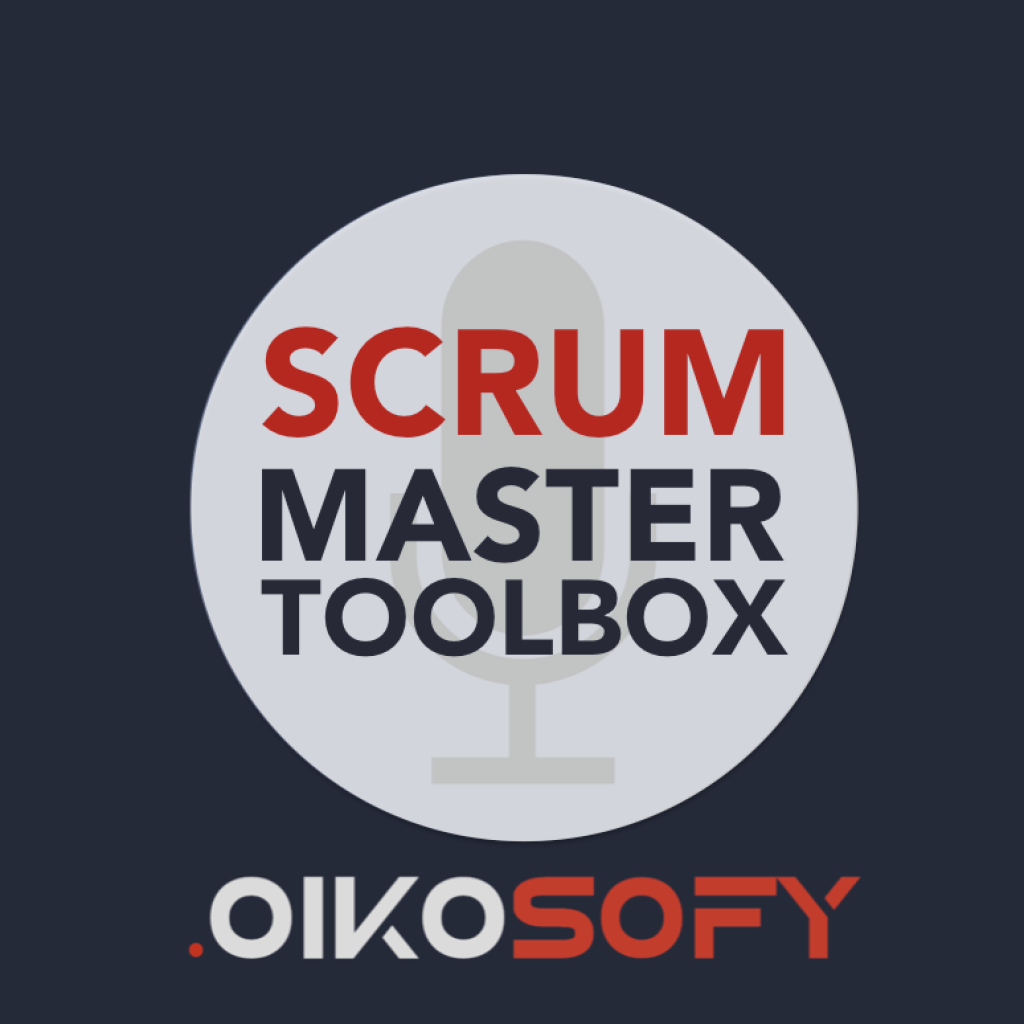
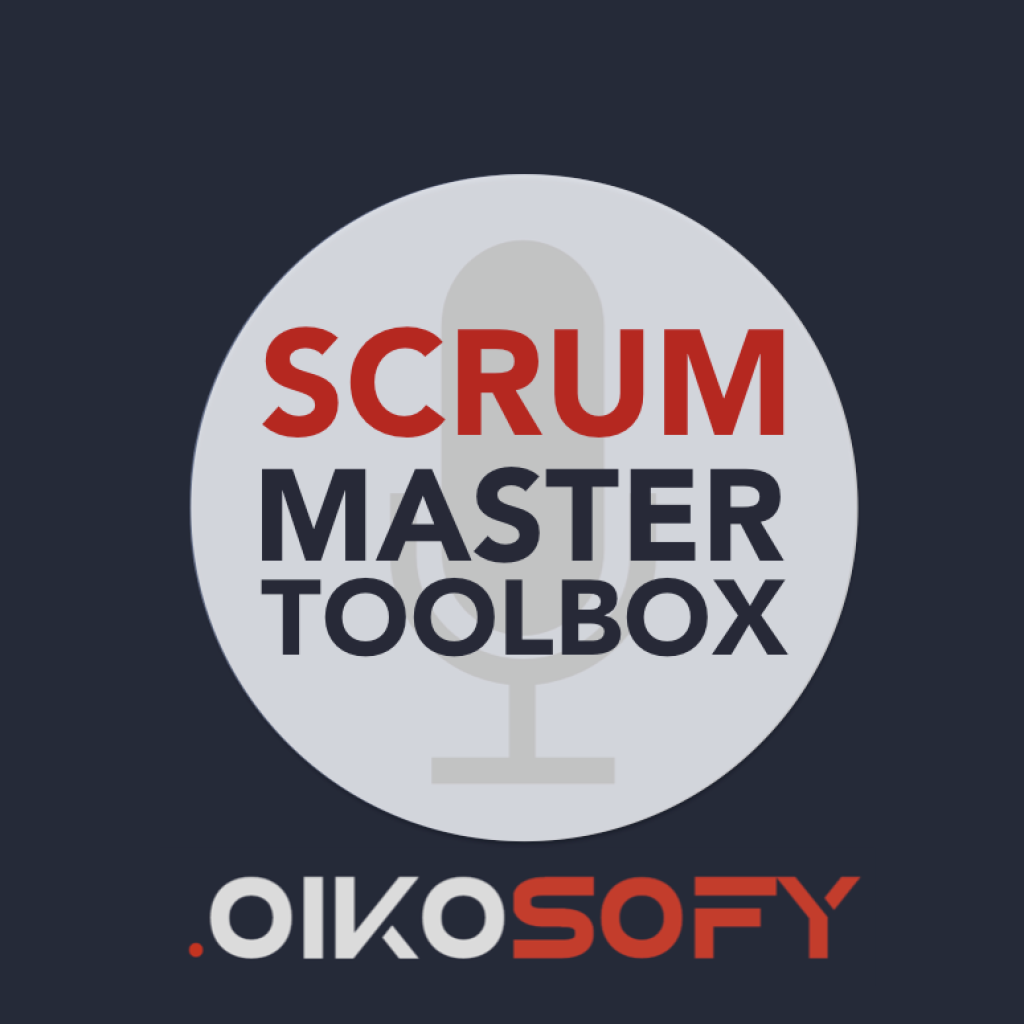
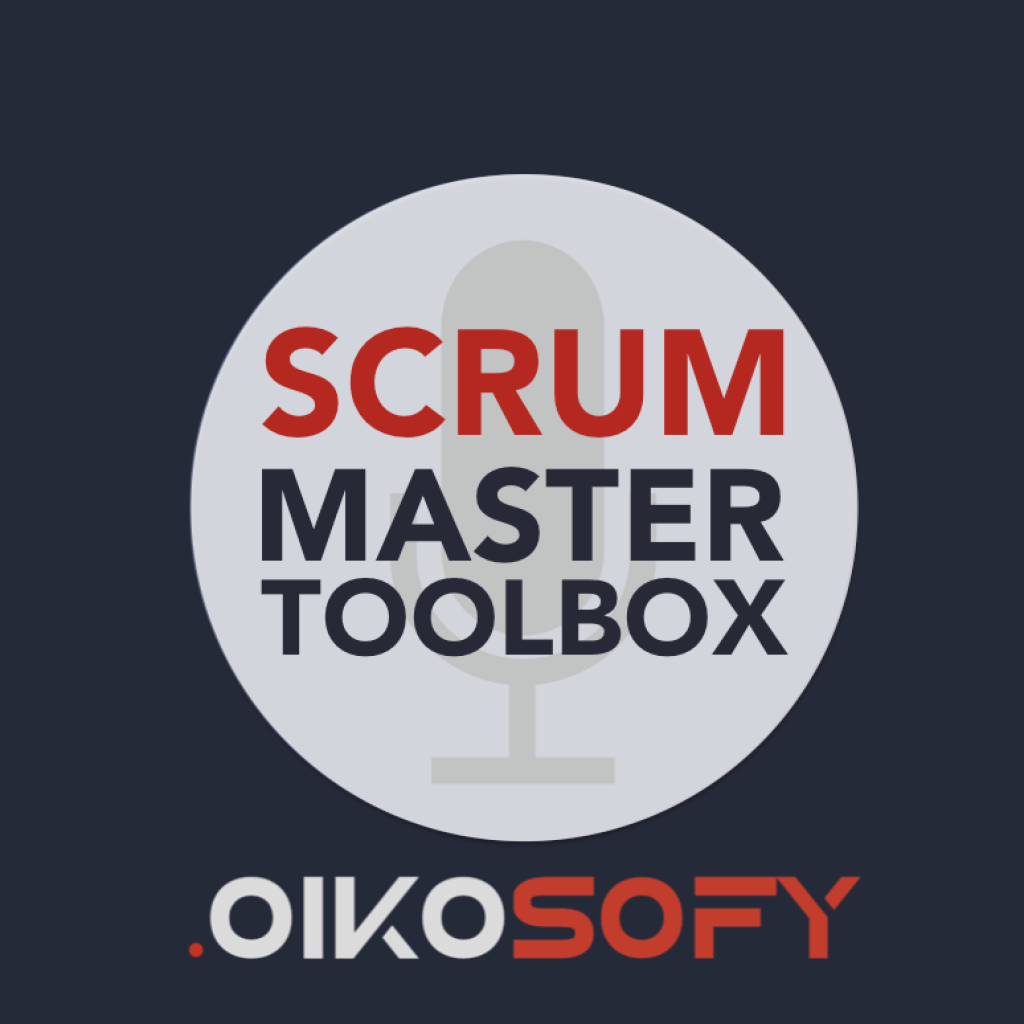
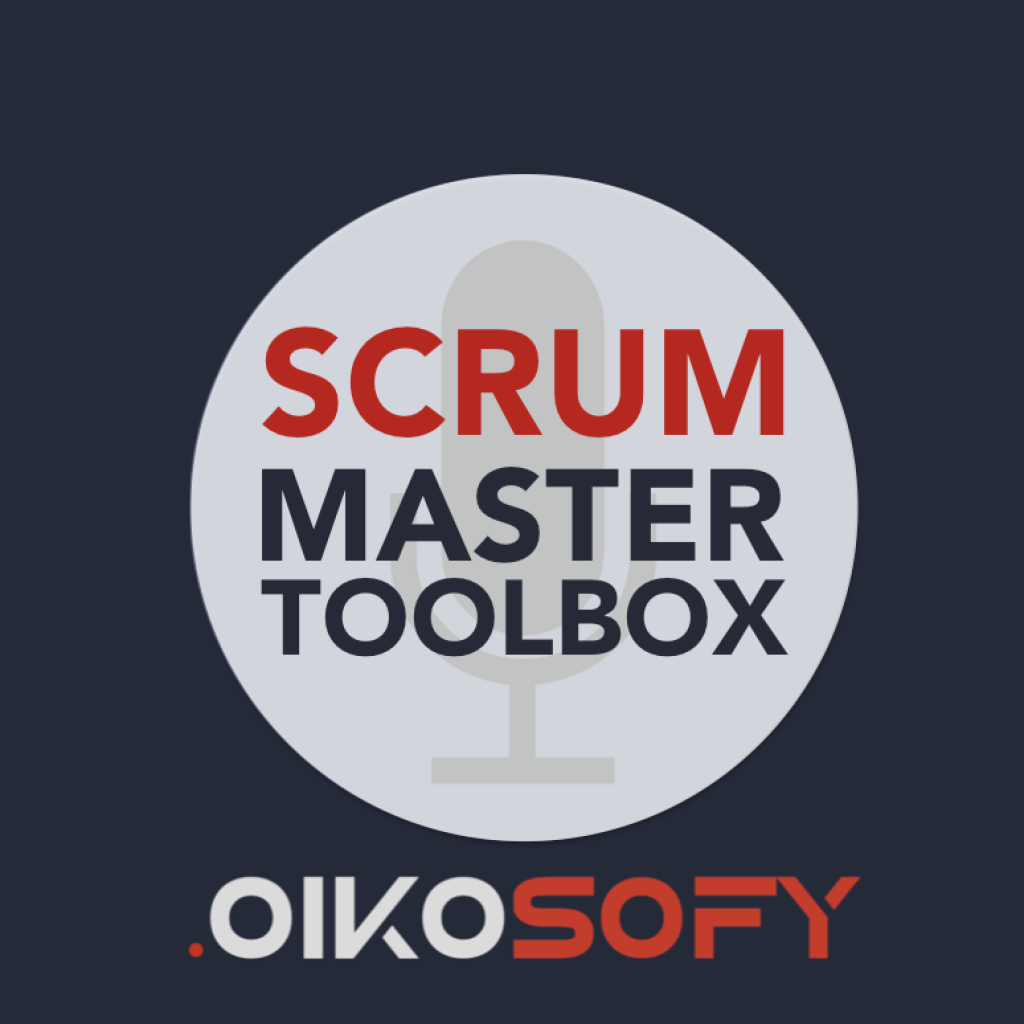
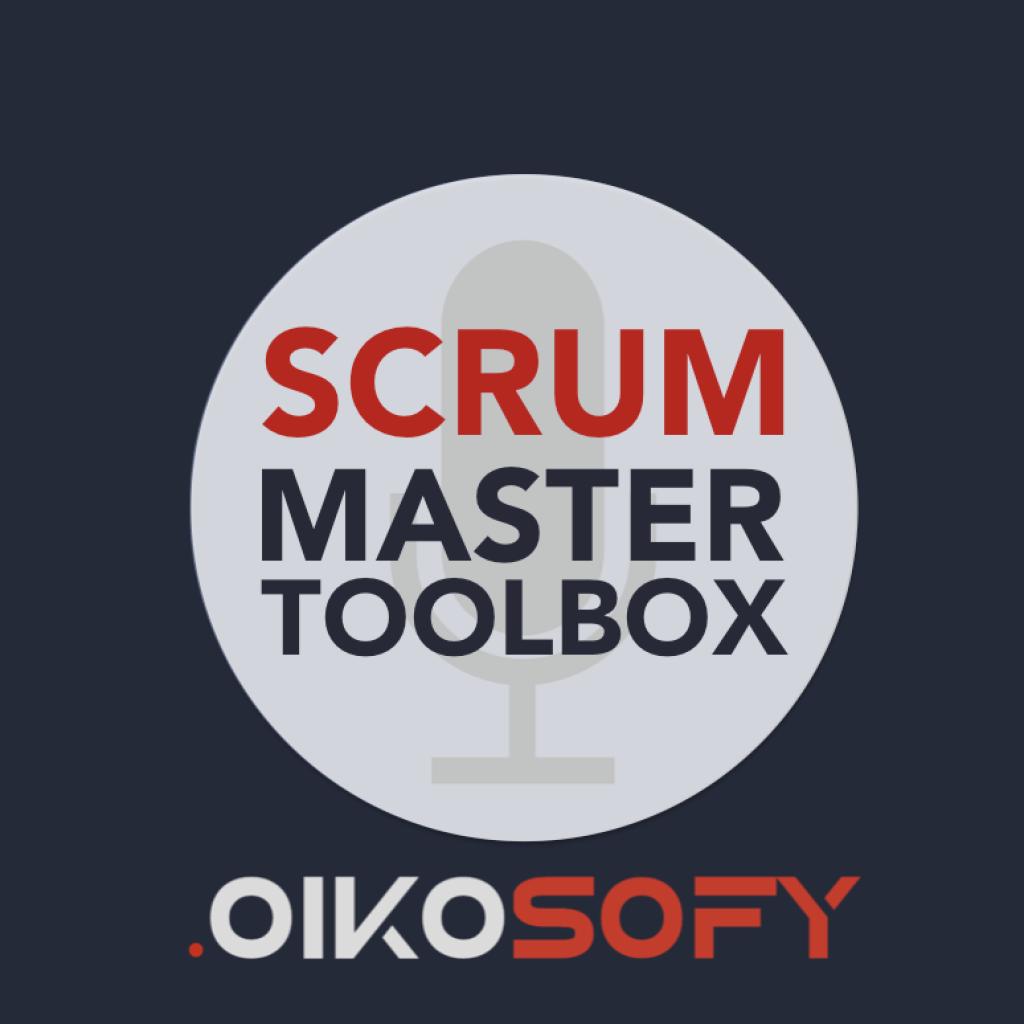
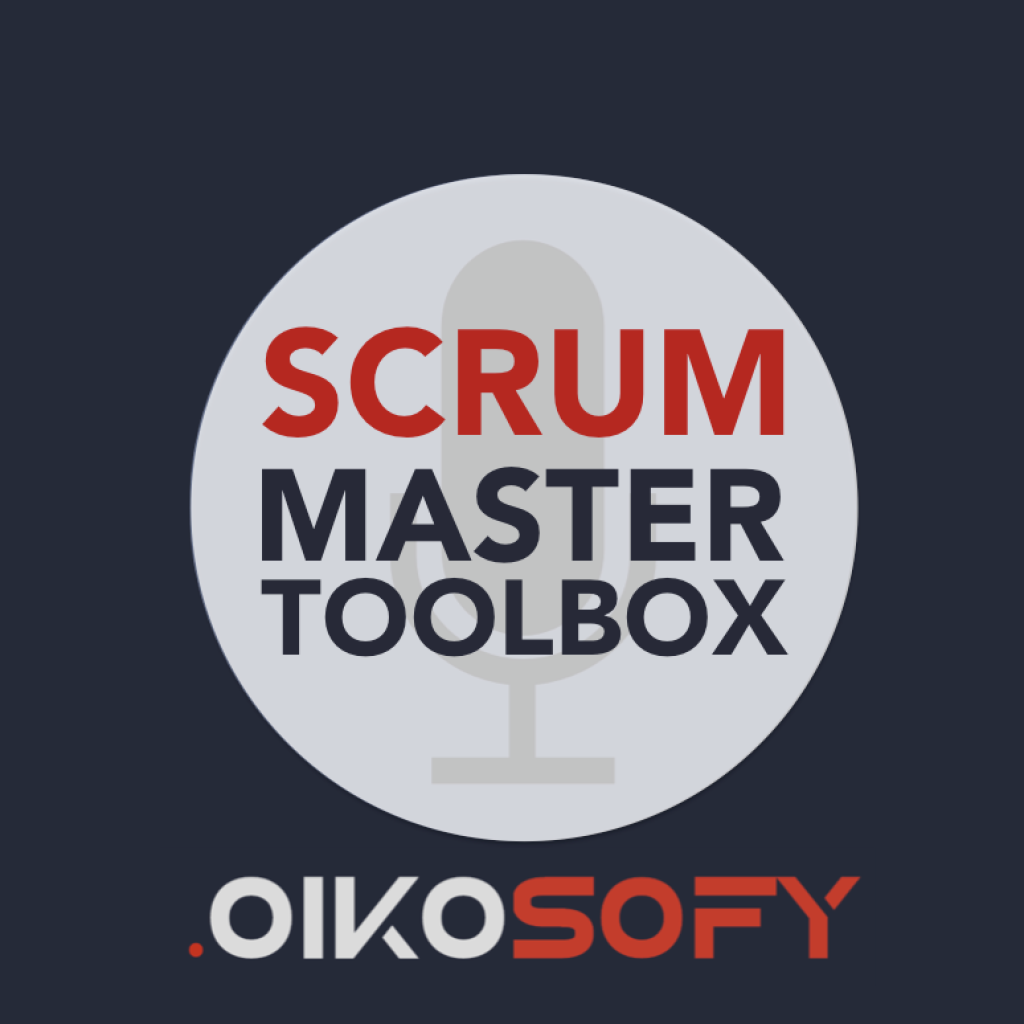
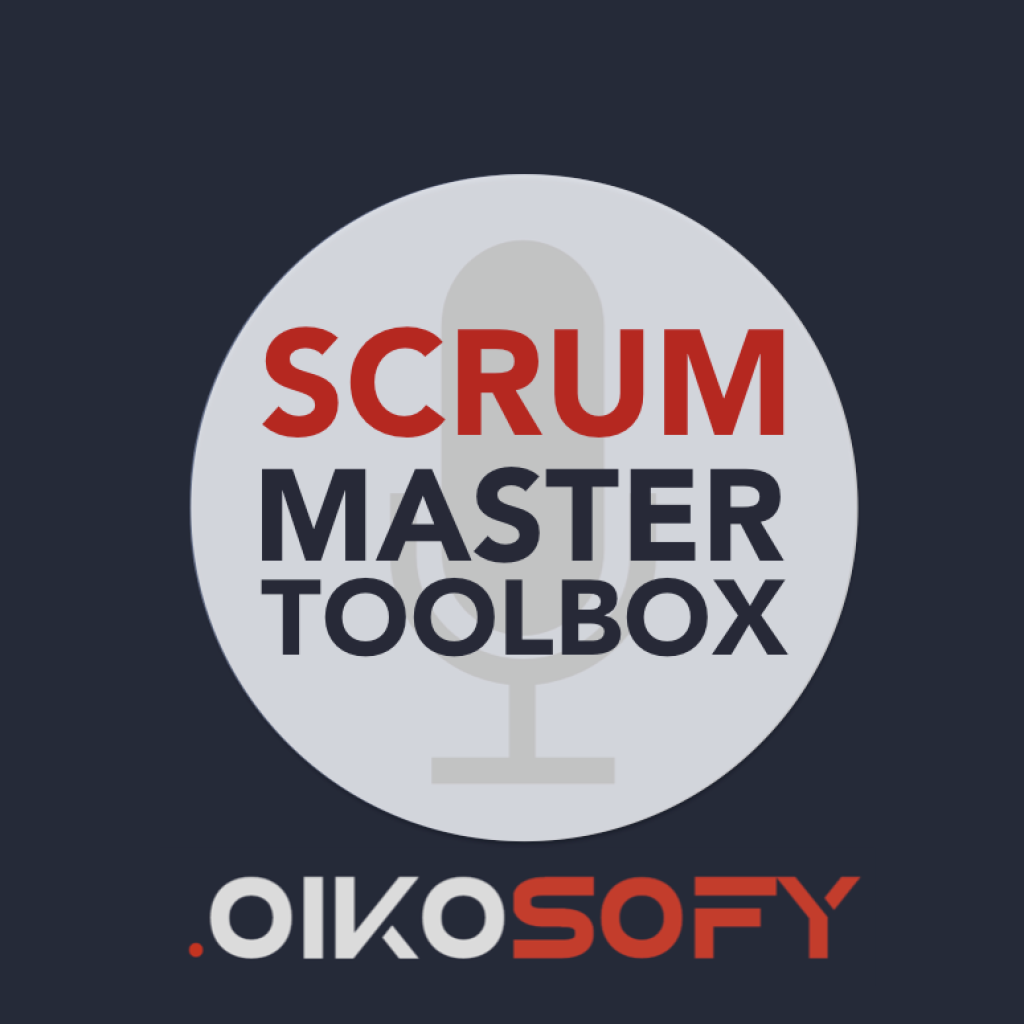
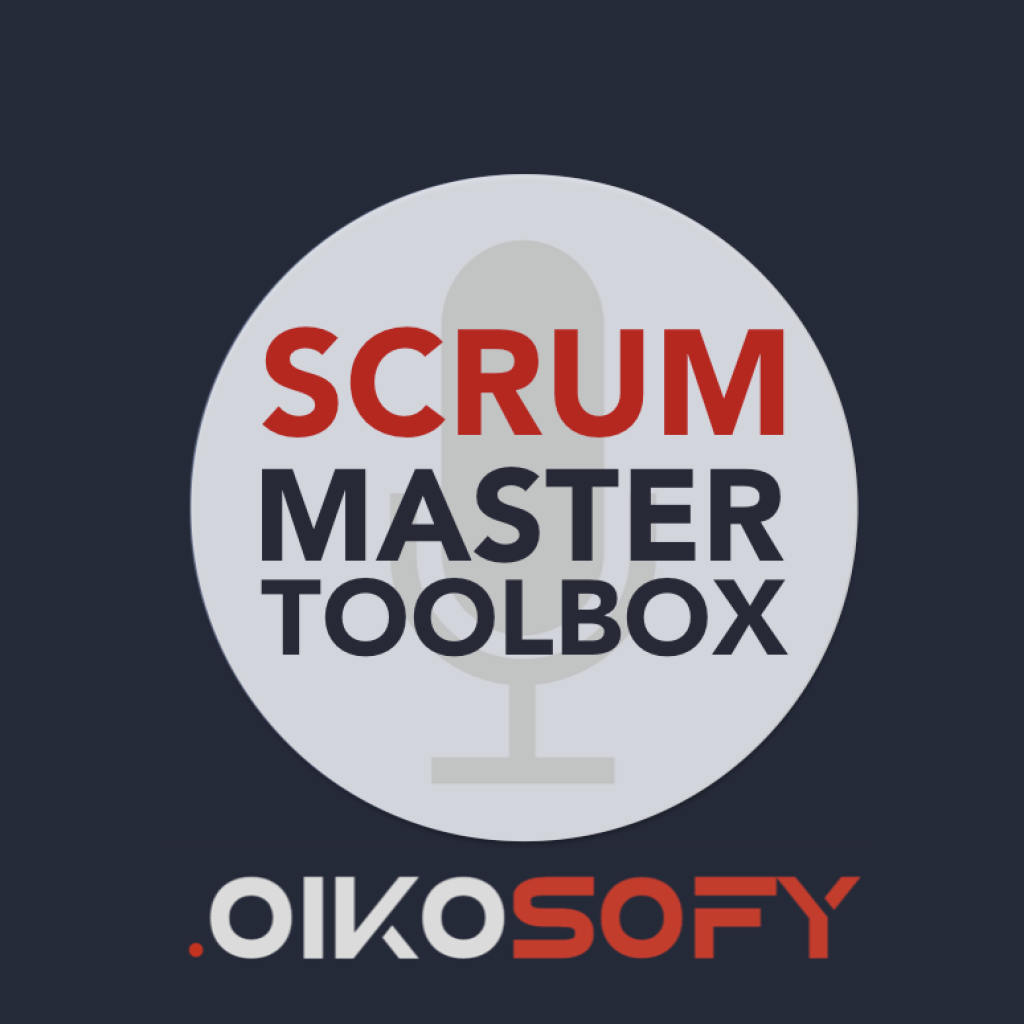
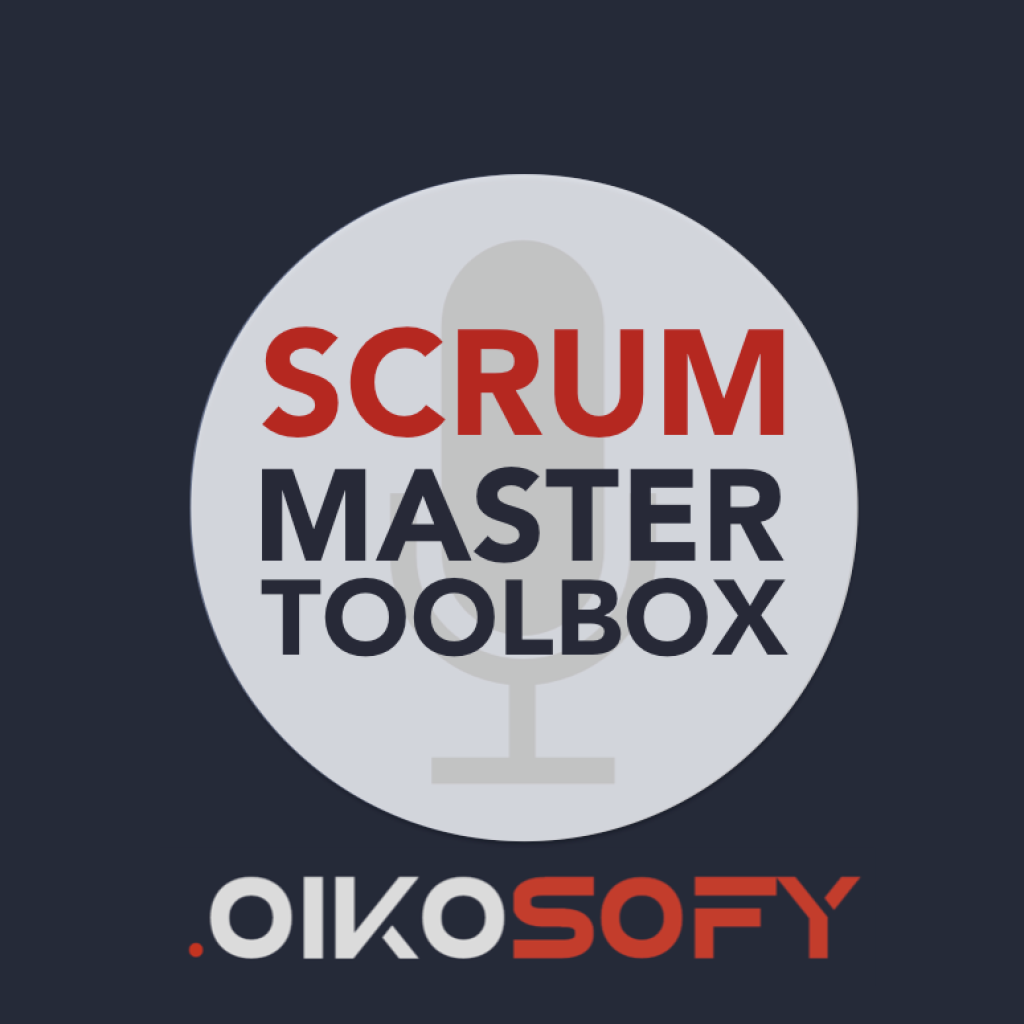
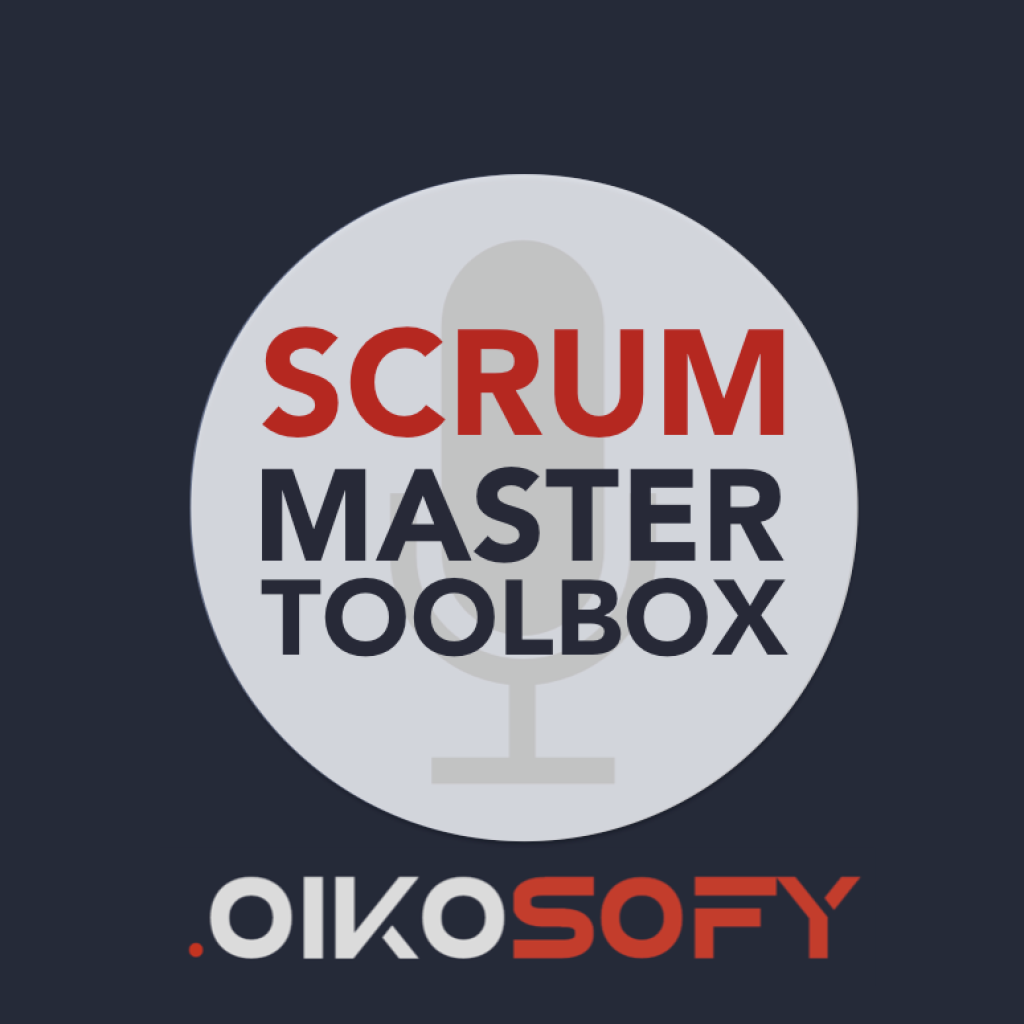
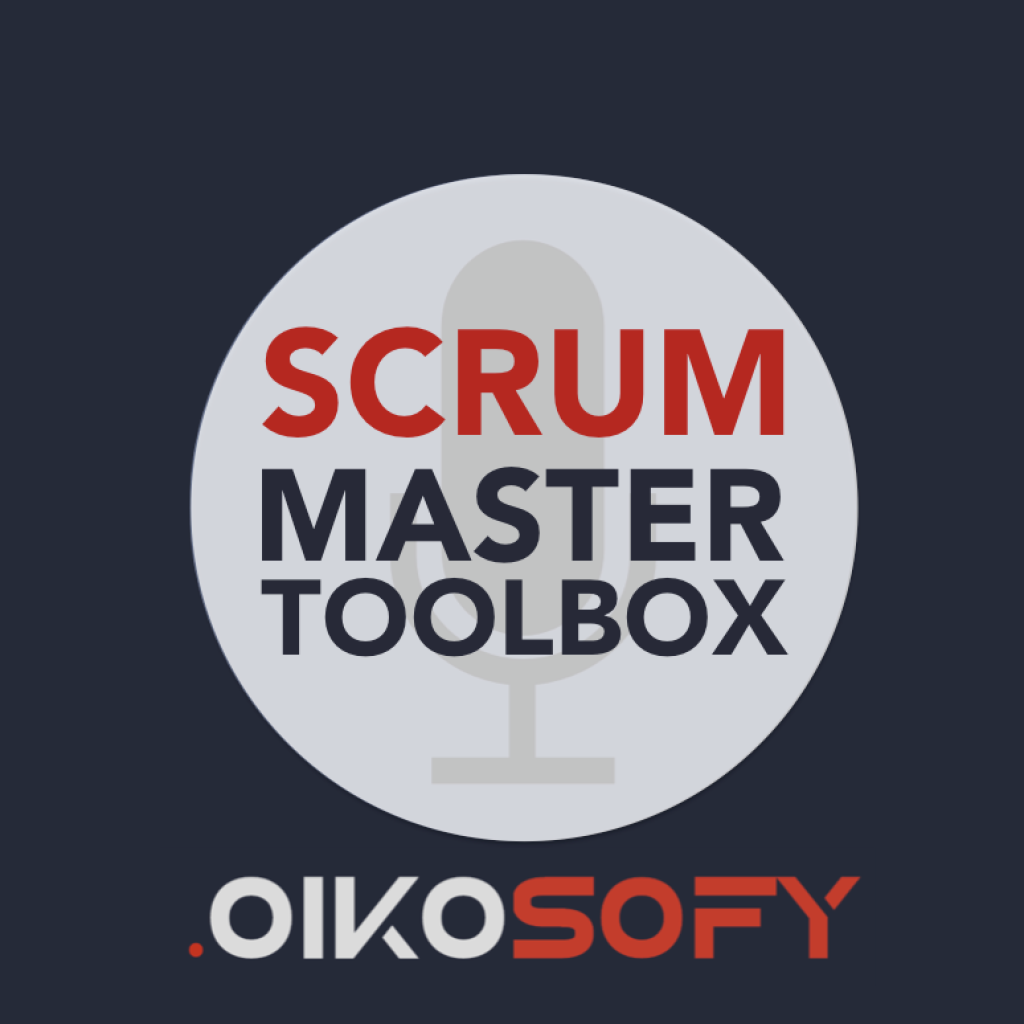

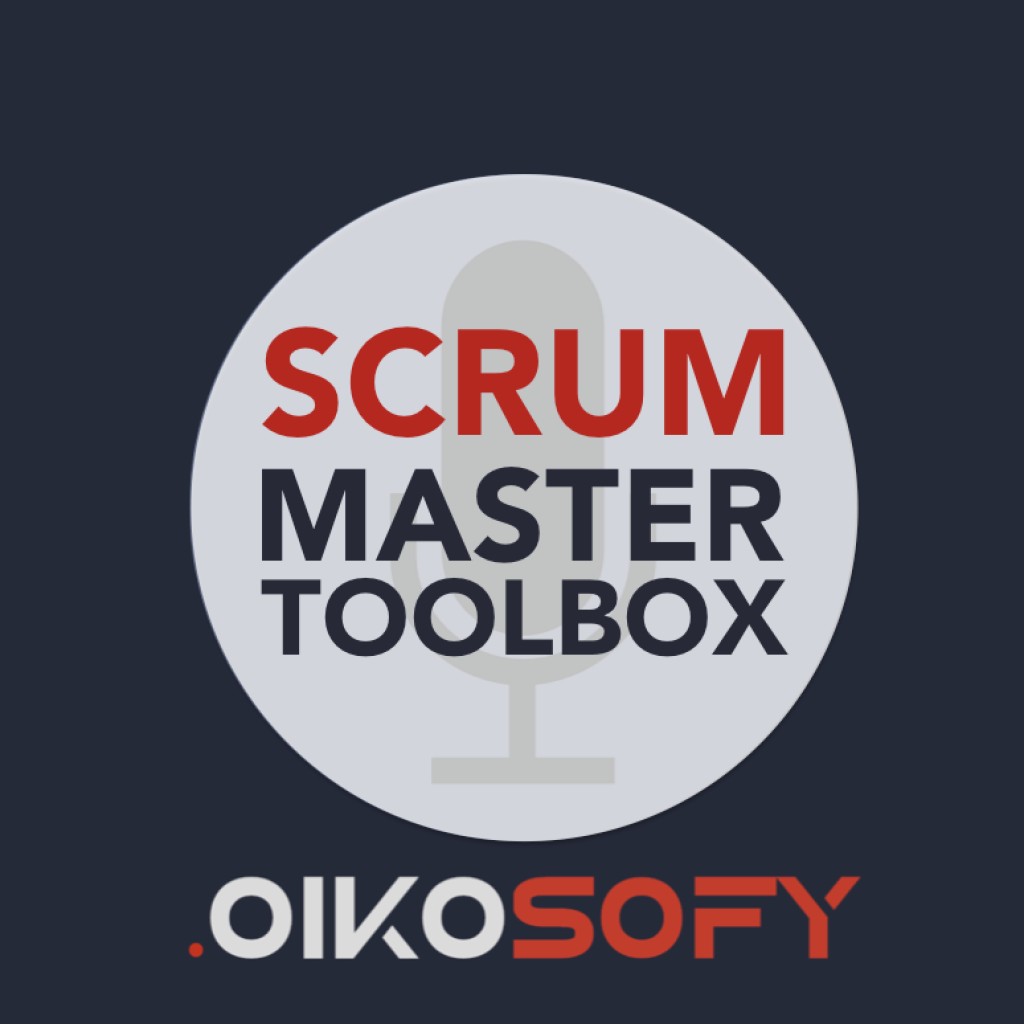
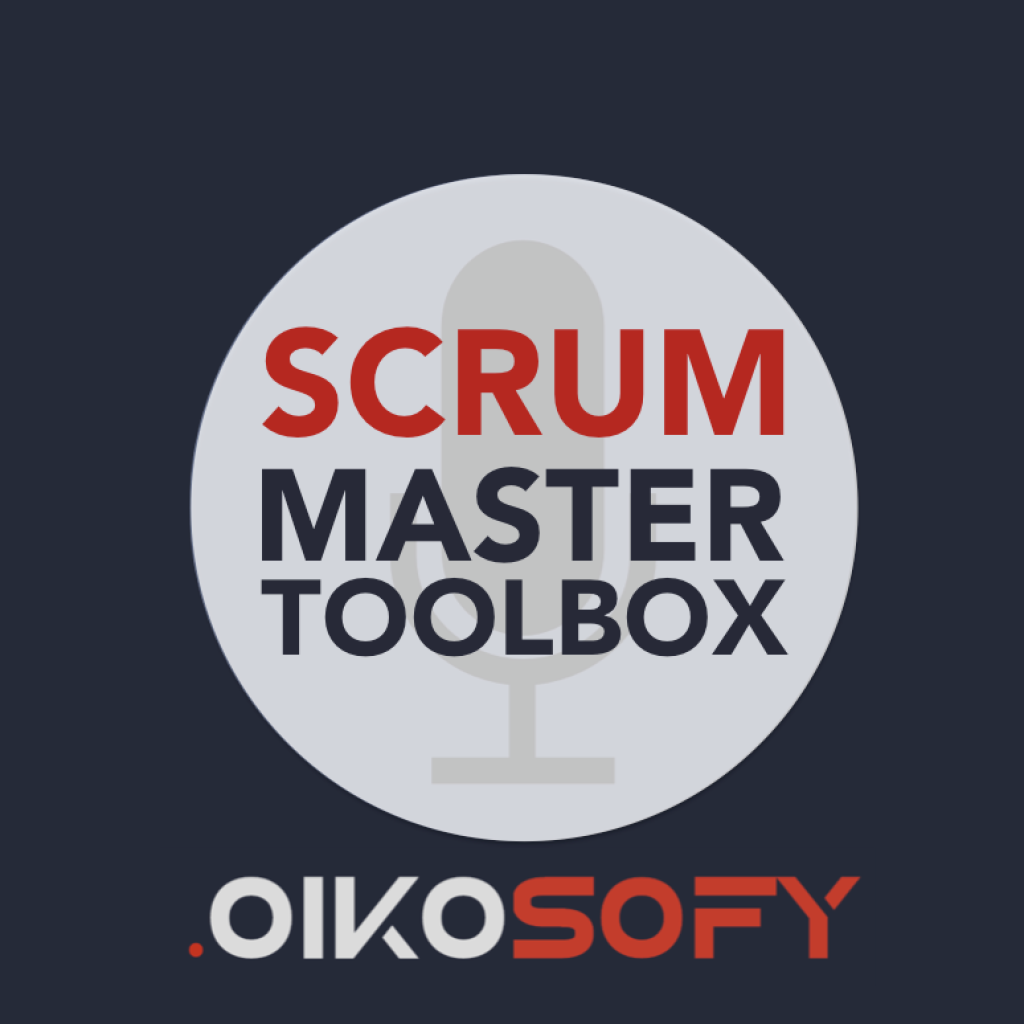
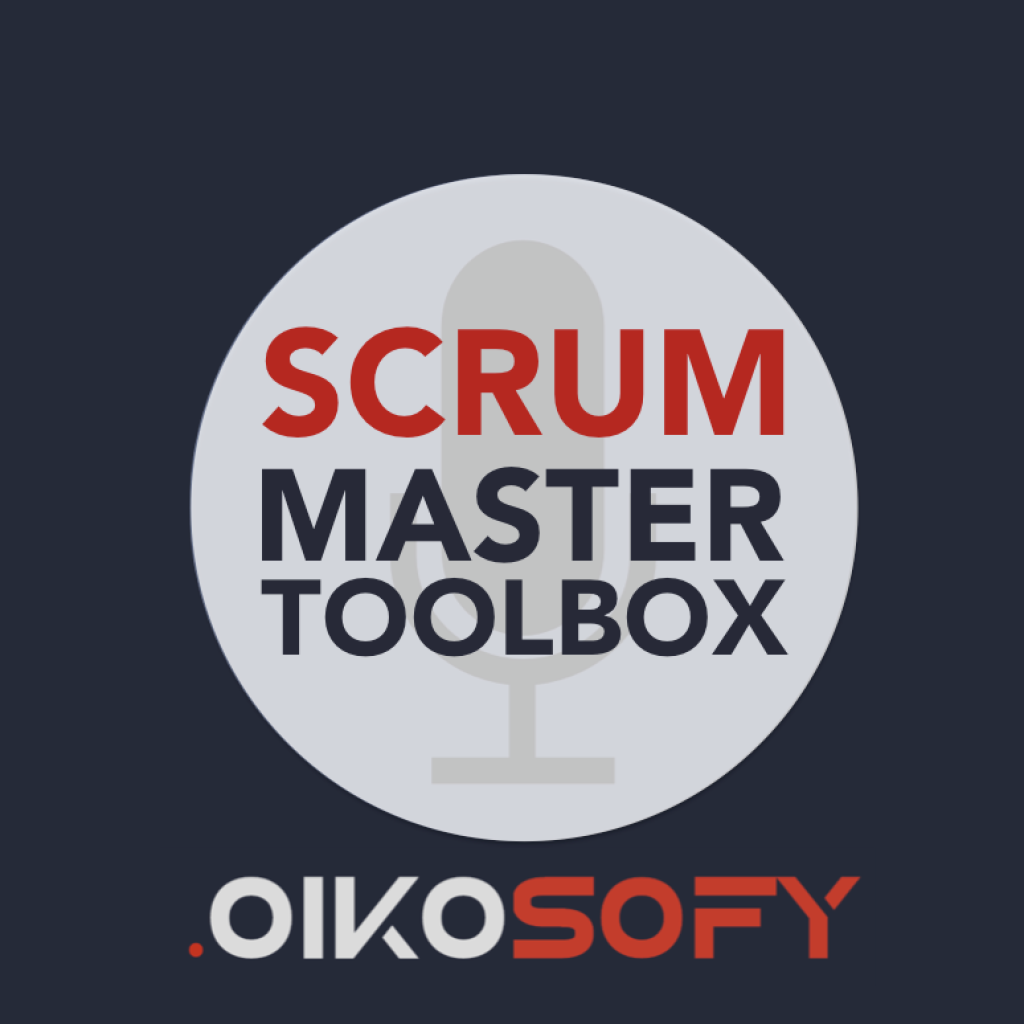
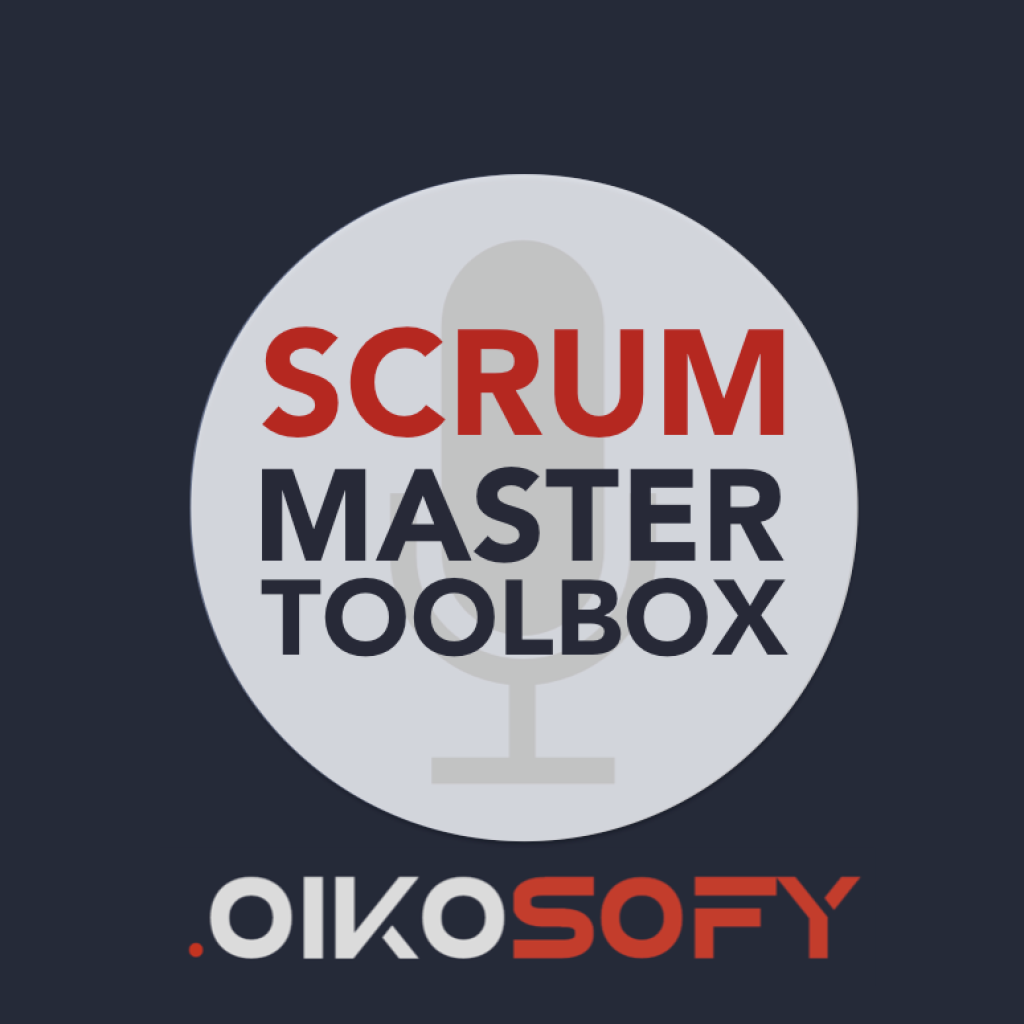
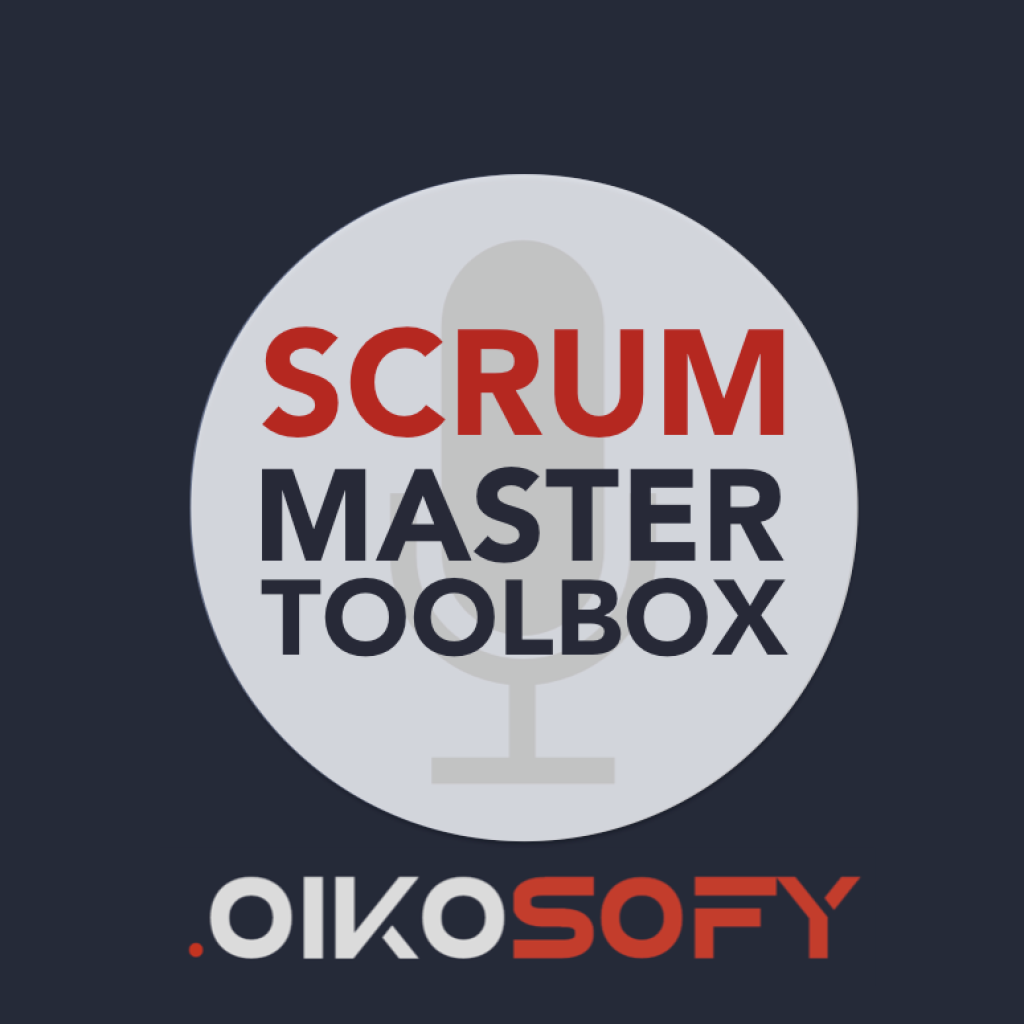
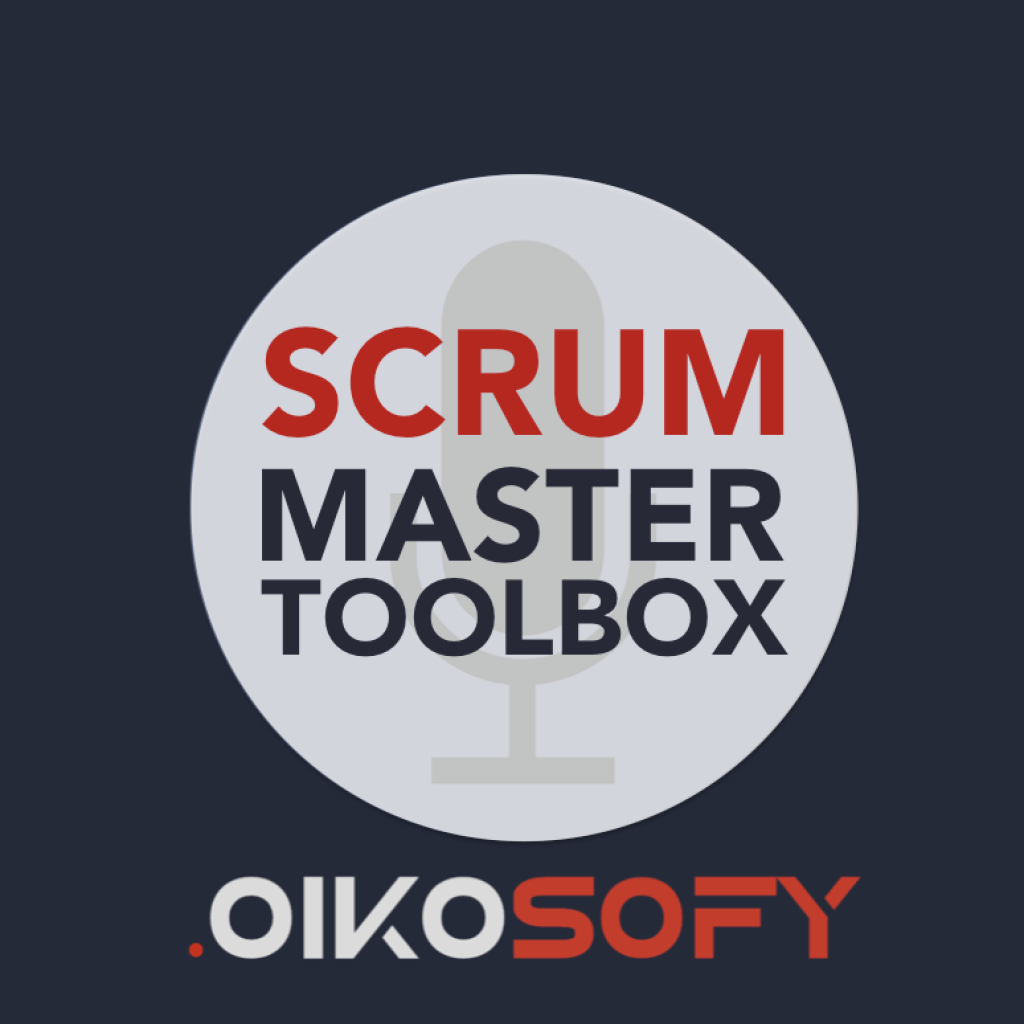
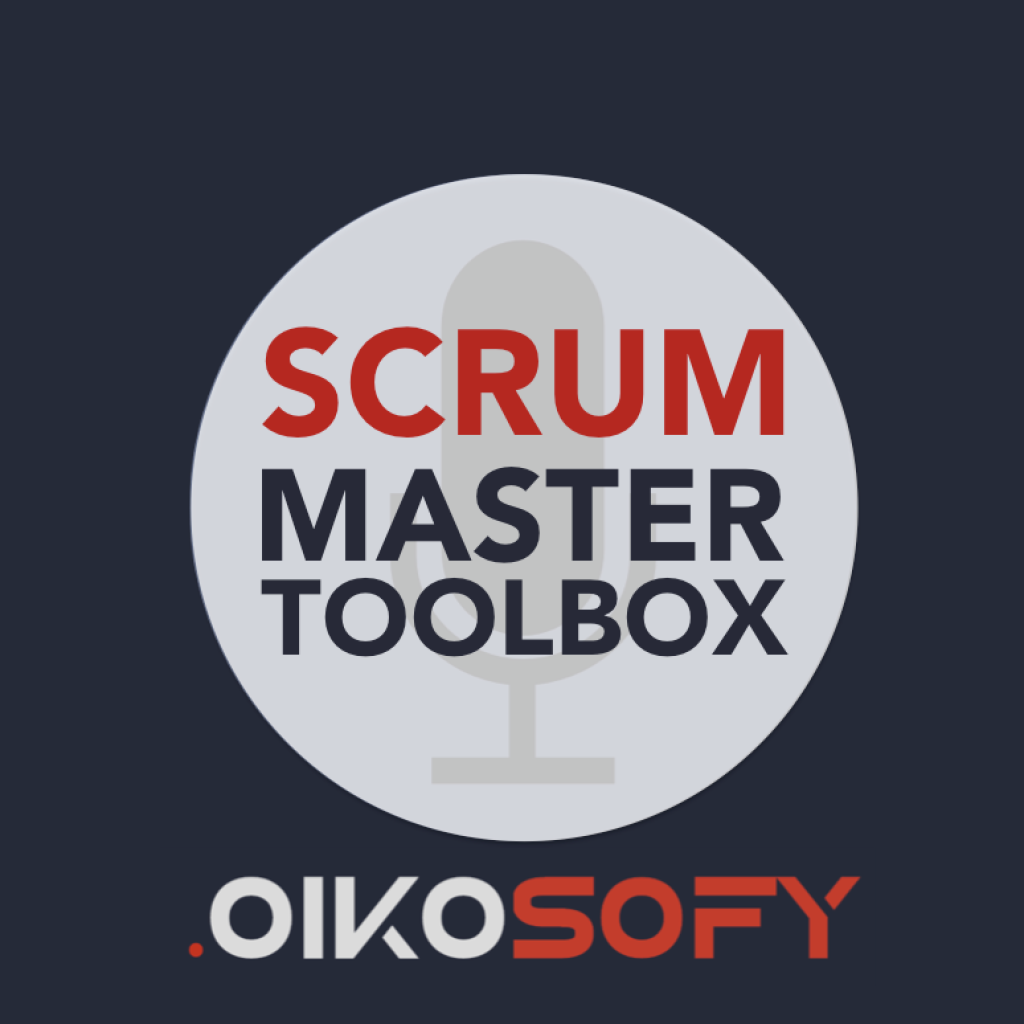
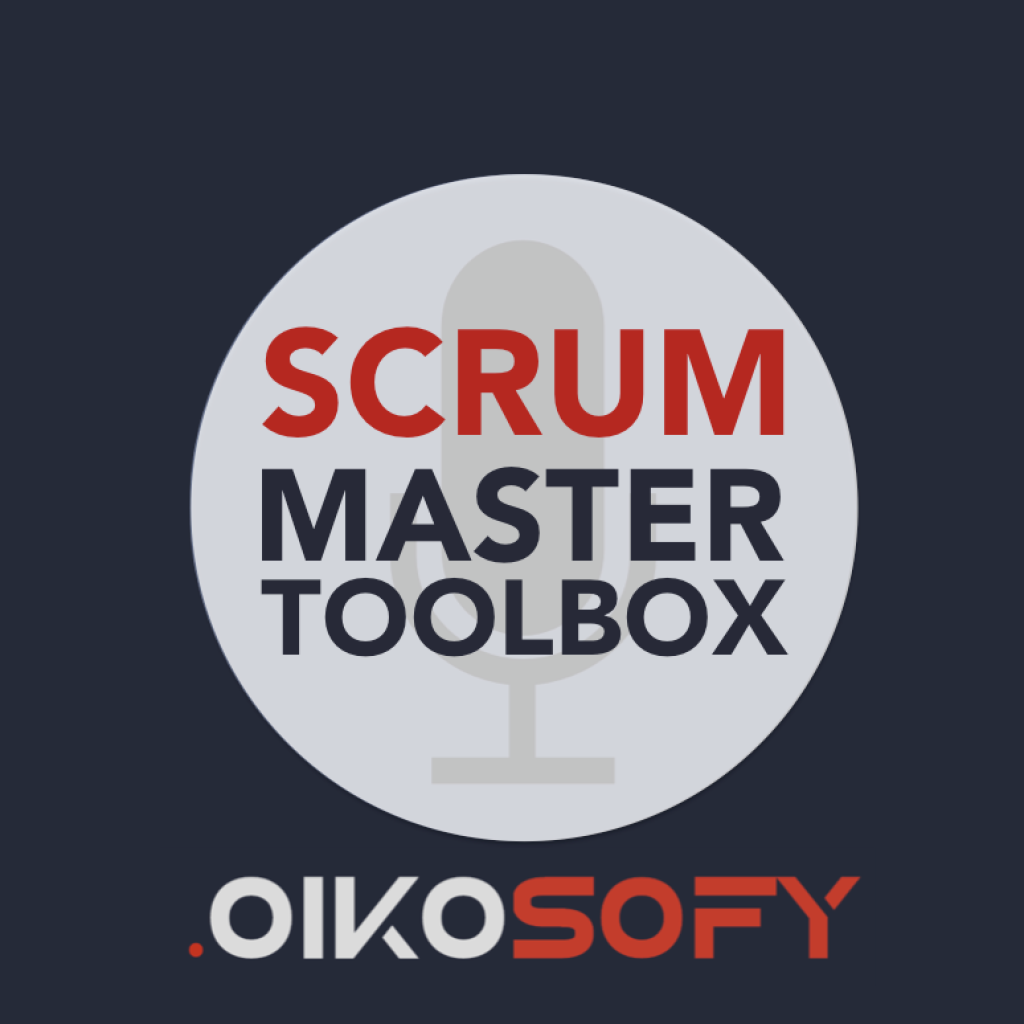


this idea is fab! Very good!
Awesome Bola!
Awesome!
I can relate to the way the issue was solved
Brilliant! If this sprint were a GIF. Love it, very creative!
Very good.
Very good poadcast !
Hi Vasco, Ajeet. Thank you for your story. I have a question for you. Shouldn't the dev team include everyone involved in the success of the development of the project like designer, copywriter, UX expert...?
Great podcast!
Hi Vasco, I really enjoy the podcast 😉. Thank you. I was wondering if you could share the link to Scrum games that kristina mentioned in the episode around measuring?
That's an insight.